#its a lyrical masterwork of perfection
Explore tagged Tumblr posts
Text
Newsies set my standards for a even slightly okay choreography so fucking high you might as well your buy a plane ticket at this point
#like#hamilton#love it#with my life#its a lyrical masterwork of perfection#lin manuel miranda?#-peotic genius!#but the choreo sucked dogshit#nuh-uh
32 notes
·
View notes
Text
In the pantheon of modern music, few songs achieve the alchemy of narrative depth, lyrical poetry, and sonic excellence as seamlessly as "The Poet and the Muse" by Poets of the Fall, under their fictional alias Old Gods of Asgard.
youtube
This haunting rock ballad stands as a testament to the power of meticulous composition, evocative lyrics, and polished production, crafting an experience that lingers long after the final chord fades.
The lyrics of "The Poet and the Muse" are a masterwork of storytelling, weaving a mythic narrative that feels both timeless and intimate. Lines like “Find the lady of the light, gone mad with the night” conjure vivid imagery, blending gothic romance with existential dread. The song unfolds like a fable, chronicling a poet’s descent into a shadowed world where love and loss collide. Its metaphors—light as salvation, night as madness—carry universal resonance, inviting listeners to project their own struggles onto its verses.
What elevates the lyrics is their economy and precision. Every word serves a purpose, advancing the story while maintaining a rhythmic flow that pairs effortlessly with the melody. The chorus, with its plaintive call to “follow the light,” is both a plea and a command, balancing vulnerability with urgency. This duality ensures the song feels personal yet epic, a rare feat in modern songwriting.
Musically, "The Poet and the Muse" is a triumph of structure and emotion. The song opens with a delicate acoustic strum, setting a melancholic tone that draws listeners into its world. As it builds, layers of electric guitar, steady percussion, and subtle bass create a dynamic arc that mirrors the narrative’s rising stakes. The standout moment—a searing guitar solo at the three-minute mark—erupts with cathartic intensity, its raw energy cutting through the song’s brooding atmosphere like a lightning bolt.
The composition’s strength lies in its restraint. Rather than overwhelming with bombast, it prioritizes mood, using minor chords and measured tempo to evoke a sense of longing. The interplay between soft verses and a soaring chorus creates a push-pull dynamic that keeps listeners engaged. Influences of classic rock—think Led Zeppelin’s storytelling or Blue Öyster Cult’s dark theatricality—shine through, yet the song feels wholly original, a nod to tradition without being derivative.
The production of "The Poet and the Muse" is a case study in balance. Recorded with crystalline clarity, every instrument is given space to breathe, from the crisp strum of the acoustic guitar to the resonant thump of the kick drum. The vocals, delivered with raw conviction, are layered with subtle harmonies that add depth without overpowering the lead. The mix strikes a perfect equilibrium, ensuring the song feels both intimate and grandiose.
What sets the production apart is its ability to preserve the song’s soul. Despite its polished sheen, there’s an organic quality—a slight grit in the guitar tone, a tremble in the vocal delivery—that grounds the track in human emotion. This authenticity prevents the song from feeling overly slick, a common pitfall in modern rock production. The result is a track that sounds equally at home in a dimly lit bar or a sprawling concert hall.
"The Poet and the Muse" is a rare gem: a song that marries lyrical depth, compositional finesse, and production excellence into a cohesive whole. Its story of love, loss, and redemption transcends its runtime, inviting listeners to lose themselves in its world. For aspiring songwriters, it’s a blueprint for crafting music that resonates on multiple levels—intellectual, emotional, and visceral. For fans, it’s a reminder of music’s power to tell stories that endure.
"The Poet and the Muse" stands as a defiant counterpoint, proving that rock can still be profound, poetic, and transcendent. It’s not just a song; it’s a journey—one worth taking again and again.
Year: 2010
Composer, Lyricist: Marko Saaresto, Olli Tukiainen, Markus Kaarlonen
Producer: Markus Kaarlonen
youtube
youtube
youtube
#music#music review#review#soundtrack#2010s#2010s rock#rock#Old Gods Of Asgard#Poets Of The Fall#remedy entertainment#Alan Wake#video game music#Youtube
4 notes
·
View notes
Text
Dennis Alexander: Weaving Joy and Pedagogy into Piano Keys
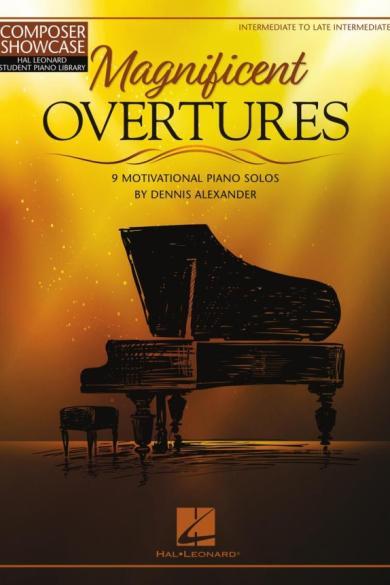
Dennis Alexander: Weaving Joy and Pedagogy into Piano KeysBest Sheet Music download from our Library.Browse in the Library:Who is Dennis Alexander? Full BioBrowse in the Library:
Dennis Alexander: Weaving Joy and Pedagogy into Piano Keys
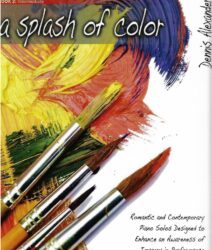
For countless piano students around the globe, the name Dennis Alexander resonates not just as a composer, but as a trusted companion on their musical journey. An American pianist, esteemed educator, and remarkably prolific composer, Alexander has carved a unique niche in the world of music, dedicating his career to making piano learning accessible, enjoyable, and artistically fulfilling.
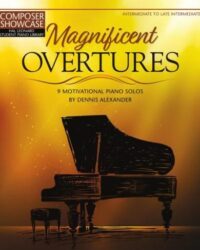
From Performer to Pedagogue: Born in 1946, Alexander's musical foundation was laid early. His talent led him to the University of Oklahoma, where he earned both Bachelor and Master of Music degrees in Piano Performance. While a skilled performer, Alexander discovered a profound passion for teaching. He spent over two decades as a Professor of Piano at the University of Montana, nurturing the talents of future musicians and gaining deep insight into the pedagogical needs of students at all levels.
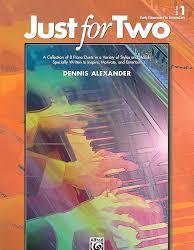
The Composer's Calling: It was this intimate understanding of the student experience that ignited Alexander's prolific composing career. Recognizing a need for repertoire that was both technically appropriate for developing pianists and musically engaging, he began crafting pieces that filled this crucial gap. His collaboration with major educational publishers, most notably Alfred Music, became legendary.
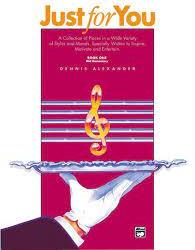
- Prolific Output: With over 300 publications to his credit, Alexander's catalog is staggering. His compositions span the entire pedagogical spectrum, from the earliest primer levels through advanced intermediate repertoire. - Signature Style: Alexander's music is instantly recognizable for its: - Infectious Melodies: He has a gift for crafting memorable, singable tunes that captivate students. - Colorful Harmonies: Moving beyond simple diatonicism, he incorporates rich, contemporary harmonies (7ths, 9ths, added tones) that sound sophisticated yet remain accessible. - Catchy Rhythms: Syncopations, Latin grooves, waltz feels, and driving rock patterns infuse his music with energy and excitement. - Expressive Range: While often joyful and lively, his pieces also explore lyrical beauty, introspection, and evocative moods, teaching students vital expressive skills. - Pedagogical Intent: Each piece is carefully designed to teach specific technical skills (articulation, dynamics, coordination) or musical concepts (form, phrasing, style) without sacrificing musicality.

Themes and Impact: Alexander's compositions often draw inspiration from diverse sources: - American Landscapes: Pieces evoke the spirit of the West, the energy of cities, or the serenity of nature. - Global Flavors: Latin rhythms, jazz harmonies, and folk-inspired melodies add variety and cultural exposure. - Pure Emotion: Many pieces capture universal feelings of joy, wonder, nostalgia, or playfulness. His impact on piano pedagogy is immeasurable: - Democratizing Enjoyment: He made learning fun, helping students overcome technical hurdles while experiencing the immediate joy of making beautiful, contemporary-sounding music. - Bridging the Gap: His pieces often serve as the perfect stepping stones between method books and the classical masterworks, keeping students motivated. - Teacher's Ally: Piano teachers worldwide rely heavily on his vast library of repertoire to find the perfect piece for each student's needs and interests. - Concert Ready: Many of his intermediate and advanced pieces are not just studies but compelling concert works enjoyed by audiences. Recognition and Legacy: Alexander's contributions have been widely recognized. He received the MTNA-Frances Clark Keyboard Pedagogy Award (1999) and was inducted into the Oklahoma Music Teachers Association Hall of Fame (2014). He remains an active clinician, giving workshops and masterclasses that inspire both teachers and students. More Than Just Notes: Dennis Alexander is more than a composer; he's an architect of musical confidence. His genius lies in understanding that technical development and artistic expression are not mutually exclusive in the learning process. He empowers students by giving them music they want to play – music that sounds impressive, feels good under the fingers, and speaks directly to their musical sensibilities. In doing so, he has fostered a love for the piano in generations of students, ensuring that his legacy resonates not just in published scores, but in the continued joyful sound of pianos being played in practice rooms and recital halls everywhere. He is, truly, a cornerstone of contemporary piano education.
Who is Dennis Alexander? Full Bio
Since his original affiliation with Alfred Publishing Company in 1986 as a composer and clinician, Dennis Alexander has earned an international reputation as one of North America's most prolific and popular composers of educational piano music for students at all levels. Professor Alexander retired from his position at the University of Montana in May 1996 where he taught piano and piano pedagogy for 24 years. Upon moving to California, he taught privately in addition to serving on the faculties of Cal State Fullerton and Cal State Northridge. He currently lives in Albuquerque, New Mexico where he maintains an active composing and touring schedule. He currently publishes with Hal Leonard Corporation, the largest sheet music publisher in the world. Professor Alexander is a native Kansan, having graduated from the University of Kansas where he was a student of Richard Reber. In 1972, he was invited to join the faculty at the University of Montana and served as piano department chair in addition to his teaching duties in applied piano, class piano and piano pedagogy. In 1987, he made his New York debut at Carnegie Recital Hall with violinist Walter Olivares and continues to be active as a soloist, accompanist and chamber musician. He has served as a collaborative artist for numerous internationally recognized soloists, instrumentalists, and chamber groups. A former president of the Montana State Music Teachers Association, he is a popular clinician at state and national music teacher conventions. In 2009, he was invited by MTNA to conduct the intermediate level master class at their national convention in Atlanta and was invited to do so again in 2022 for the conference in Minneapolis. Professor Alexander was a judge for "Musiquest", a national piano competition in India and has toured twice to the far East where he performed recitals and workshops in Singapore, Hong Kong, Malaysia, Indonesia and South Korea. Over the years, numerous organizations and state associations have commissioned him to write compositions. Many of his compositions are included in the National Federation of Music Study Clubs Festival required list and his music is being performed by students throughout the United States, Canada, South Africa, Australia, Asia, and Europe. One of Mr. Alexander's most significant contributions to the repertoire is "24 Character Preludes" in all major and minor keys which includes a CD with Dennis Alexander as soloist. In 2015, he was honored by the National Conference on Keyboard Pedagogy with the "Lifetime Achievement Award". He is also a co-author of an exciting and innovative piano method entitled "Alfred's Premier Piano Course". A chamber music work, entitled "Dance Suite" for piano, violin, and cello was commissioned by MTNA in 2013. His "Nocturnes for Piano", Bks. 1 & 2 were selected as the recipient of the prestigious 2020 MTNA/Frances Clark Pedagogy Award. Mr. Alexander's personal website, www.DennisAlexander.com has become a favorite with piano teachers and features recordings, videos, teaching tips, and much more! Read the full article
#SMLPDF#noten#partitura#sheetmusicdownload#sheetmusicscoredownloadpartiturapartitionspartitinoten楽譜망할음악ноты#spartiti
0 notes
Text
Top 6 Most famous Things in Portugal
Portugal is a captivating country known for its rich culture, stunning landscapes, and vibrant traditions. From its beautiful beaches to its historic architecture, Portugal has become a must-visit destination for travelers worldwide. The country is famous for a variety of things that reflect its unique heritage, such as soulful Fado music and the production of world-renowned Port wine. The intricate azulejos (ceramic tiles) and mouthwatering cuisine further add to Portugal’s charm. Whether exploring its ancient castles or indulging in fresh seafood, visitors are drawn to the diverse experiences Portugal offers. This introduction highlights some of the most iconic elements that make Portugal famous and beloved across the globe.

Here are some of the most famous things in Portugal.
1. Beautiful Beaches and Coastal Scenery:

Portugal's coastline is one of the main draws of the country because it is home to some of Europe's most beautiful beaches. Beach lovers will find nirvana on the nation's beaches, which range from the golden, sun-drenched coasts of the Algarve in the south to the untamed, rocky beaches along the western coast. Particularly the Algarve is well-known for its immaculate beaches, glistening waters, and striking cliffs that provide picture-perfect vistas. Because of its breathtaking natural beauty, Praia do Marinha, one of the Algarve's most famous beaches, is frequently named as one of the best in all of Europe. Beaches like Nazaré, which are further up the coast, are well-known for their enormous waves and draw professional surfers.
2. Vast cultural history and preserved architecture:

Portugal's magnificent architecture, which combines a variety of architectural styles, including Gothic, Baroque, and Manueline (a particular Portuguese style named after King Manuel I), is a testament to the country's rich history. Some of the most well-known historical sites, such as the Jer��nimos Monastery and Belém Tower, which are both UNESCO World Heritage Sites, may be found in the nation's capital, Lisbon. Constructed in the earliest part of the 16th century, the Belém Tower presently remains as a representation of Portugal's Age of Exploration and was used as a ceremonial entrance and fortification for the city. A masterwork of Manueline architecture, the Jerónimos Monastery is distinguished by its elaborate carvings and striking façade.
3. Portuguese Soul's Heart, Fado Music:

One of the most well-known and deeply felt facets of Portuguese culture is fado, or traditional Portuguese music. Fado is known for its emotional lyrics that frequently discuss longing, love, and life's sorrows. Its lyrical, sorrowful melodies have earned it recognition as an intangible cultural heritage of humanity by UNESCO. The history of fado dates back to the 19th century in Lisbon, where it originated as a working-class form of expression before swiftly expanding across the nation. Fado is still performed today in the Alfama and Bairro Alto neighborhood of Lisbon, where the music is preserved by traditional Fado homes. Portuguese guitars are gently strumming while "fadistas," or Fado singers, pour their hearts out.
4. Renowned Port Wine:
Portugal is widely known for its sweet and rich fortified wine, Port, which has won praise from all over the world. Port wine is aged in barrels and produced only in the Douro Valley, a UNESCO World Heritage Site. It is available in a range of styles, including vintage, tawny, and Ruby. The center of the Port wine business is the city of Porto, which gave rise to the wine. Along the banks of the Douro River are countless cellars and tasting rooms. When taking a guided tour of these vaults, visitors to Porto can sample some of the best vintages while learning about the age-old techniques used to manufacture Port wine. Apart from Port, Portugal produces several very good wines in areas like Alentejo.
5. The symbolic Portuguese tiles, Azulejos:
Azulejos, the stunning, frequently blue and white ceramic tiles that cover numerous buildings around the nation, are among the most recognizable and well-known features of Portuguese art and architecture. Azulejos were brought to Portugal in the fifteenth century, and since then, they have been an essential component of Portuguese culture, serving as both beautiful art and narrative devices. These tiles, which include elaborate patterns and religious or historical scenes, can be seen on the exterior of churches, palaces, and residences. Azulejos are found everywhere in towns like Lisbon and Porto, where they enliven the urban landscape with their vivid colour on walls, floors, and even metro stations.
6. Delectable Portuguese Food:
Portuguese food is popular among foodies all around the world because of its reputation for being straightforward, flavourful, and fresh. Portuguese cuisine heavily emphasizes seafood, with mainstays like grilled sardines, octopus, and bacalhau (salted cod) among the dishes. Bacalhau is so popular that there are reportedly over 365 different methods to prepare it—one for every day of the year. Pastéis de Nata, or custard tarts with a crispy, flaky crust that are best eaten warm out of the oven, are another delectable delicacy from Portugal. Any tourist should try these delicious delights.
Conclusion:
Portugal is a treasure trove of cultural, historical, and natural wonders that continue to captivate visitors. From its breathtaking beaches and historic landmarks to the soulful Fado music and world-class Port wine, the country offers unforgettable experiences for all. The intricate azulejo tiles and delicious cuisine further enhance its charm. To explore these famous attractions, obtaining a Portugal visa is the first step for travelers wishing to experience the country's beauty firsthand. Whether you're wandering through Lisbon's ancient streets or enjoying the coastal views of the Algarve, Portugal promises a rich blend of tradition, art, and flavor that leaves a lasting impression on all who visit.
0 notes
Photo

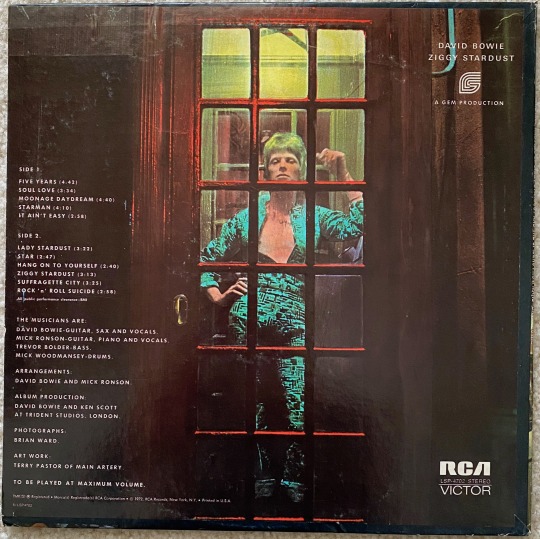


David Bowie: The Rise and Fall of Ziggy Stardust and the Spiders from Mars (1972)
I once shocked a friend into stunned, wide-eyed silence when I casually suggested I might like Hunky Dory a little better than The Rise and Fall of Ziggy Stardust and the Spiders from Mars -- you’d think I’d committed some sort of heresy, but it’s not like I was dissing this undeniable masterwork.
In any case, the signature album of David Bowie’s remarkable career (a career with more candidates for ‘signature album’ than most) arrived 50 years ago today and was immediately embraced by a burgeoning English fan base that Bowie and his Spiders (guitarist Mick Ronson, bassist Trevor Bolder, drummer Mick Woodmansey) had been 'abducting’ on tour since that January.
Much of Planet Earth would soon follow, gladly surrendering to an androgynous alien rock star so exotic, and an album so exciting, that not even the era’s chart-dominating glam genre was broadly popular enough, let alone glamorous enough, to contain it.
And that’s why The Rise and Fall ... is one of the few ‘70s glam rock LPs that transcends the style as a timeless work of classic rock, in part because its conceptually interlaced tales about this extra-terrestrial outfit’s meteoric misadventures offered musical escapism of the highest order.
But, personally, I’ve always felt that the lagging, dragging, timid fade-in of “Five Years” (literally, my least-liked song on the album) and its barely livelier folk rock follow-up “Soul Love” got the entire trip started on the wrong foot, until Ronson’s powerhouse riffs finally kicked “Moonage Daydream” up the arse.
“I’m an alligator! I’m a mama-papa comin’ for you ... I’m the space invader! I’ll be a rock ‘n’ rollin’ bitch for you ...”
Next up, first single “Starman” (distinguished by David’s dramatic octave leaps, inspired by Judy Garland’s “Somewhere Over the Rainbow”) was admittedly tainted for me by a shitty ‘80s Brazilian band’s lame cover version (complete with pretentious Portuguese lyrics), but along with the bluesy thump of “It Ain’t Easy,” this Top 10 hit suggested the best was yet to come.
And, sure enough, side two is absolute fucking perfection, beginning with the backhanded Marc Bolan tribute “Lady Stardust” (that’s the versatile Ronson, again, playing cabaret piano) and the self-fulfilling prophecy of “Star” (is there anything more dramatic than the slowed-down finale?), which asserts:
“I could make a transformation as a rock ‘n’ roll star ... I could fall asleep at night as a rock ‘n’ roll star ... I could fall in love all right as a rock ‘n’ roll star.”
Then it’s off to the races and our story’s climactic conclusion, as the Spiders frantically try to keep it together for “Hang On to Yourself,” give our hero’s rags-to-riches-to-rags cycle a literal treatment on “Ziggy Stardust,” and then go completely off script for the irresistible proto-punk blast of “Suffragette City.”
But there was no way Bowie would conclude such a pristinely crafted creation without its due measure of ceremony, and that’s where the beautifully bizarre, gothic doo wop of “Rock ‘n’ Roll Suicide” comes in to deliver a suitably theatrical final chapter for the Ziggy saga:
“You’re too old to lose it, too young to choose it; And the clock waits so patiently on your song. You walk past a cafe but you don’t eat when you’ve lived too long; Oh, no, no, no, you're a rock ‘n’ roll suicide.
Oh no, love, you're not alone! No matter what or who you’ve been; No matter when or where you’ve seen; All the knives seem to lacerate your brain; I’ve had my share, I'll help you with the pain ... You're not alone!”
Why, there’s even a final stroke of orchestrated strings that brashly mimics the massive chord at the end of The Beatles’ “A Day in the Life.”
And that bold reference is ultimately relevant because, while we can all debate over which Bowie album was best, or shifted the most units, The Rise and Fall of Ziggy Stardust and the Spiders from Mars undoubtedly had the greatest impact on his career, both as his de facto breakthrough (“Space Oddity” was a novelty number, after all) and his legacy, in general.
In the end, of all the characters David Bowie would inhabit through music over his 50-year career, none stimulated the imagination nor utterly changed more lives than the doomed alien rock star who “took it all too far but, boy, could he play guitar.”
More David Bowie: The Man Who Sold the World, Hunky Dory, Aladdin Sane, Diamond Dogs, Young Americans, Station to Station, Low, “Heroes”, Lodger, Scary Monsters (And Super Creeps), Baal EP, Let’s Dance, Tonight, Labyrinth, The Next Day, ★.
#david bowie#ziggy stardust#classic rock#space rock#glam rock#vinyl#Mark Ronson#spiders from mars#judy garland#iggy pop#lou reed#pink floyd#hawkwind#rocky horror picture show
6 notes
·
View notes
Text
Ranking Lady Gaga's albums, from worst to best
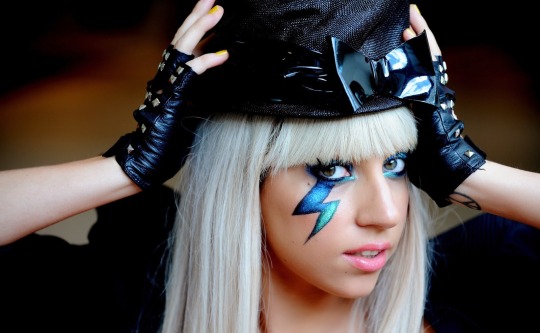
Being a Lady Gaga fan can be an exercise in frustration.
Gaga is far more ambitious than most popstars — I doubt we’ll ever see Ariana Grande or Ed Sheeran make an album as left-field as Born This Way or ARTPOP. But she's also far less consistent, with numerous misbegotten projects.
Gaga's undeniably successful, with five #1 hits, an Oscar and multiple iconic music videos to her name. But her messy album rollouts and tradition of underperforming lead singles make her feel like an underdog compared to the more polished, precise careers of her contemporaries like Taylor Swift, Beyoncé or Bruno Mars.
Gaga is kind of a mess. But she's our mess. This album ranking will cover some records I can't stand — albums that make me constantly hit the fast-forward button, or albums I ignore altogether. But there isn't a single record on here that wasn't a bold move. Even the "back to basics" albums made strong aesthetic choices.
So let's dive into the career of the most fascinating Millennial popstar.

#8: Cheek To Cheek (2014)
This really shouldn't count. It's a Lady Gaga album in name only. But, technically it's a Gaga album, so here we are.
I've got nothing against Gaga having fun playing Rat Pack-era dress-up with Tony Bennett. She's a theatre kid at heart, and I'm sure every theatre kid would kill to make a Great American Songbook covers record like this. It sounds like she and Tony enjoyed themselves, so I'm happy for them!
...but I'm sorry. I can't be objective about Cheek To Cheek, it's the opposite of my taste. There's only so many bland lounge ballads I can take.
BEST SONGS: I have to pick one? "Anything Goes" is cute, I guess.
WORST SONG: "Sophisticated Lady"
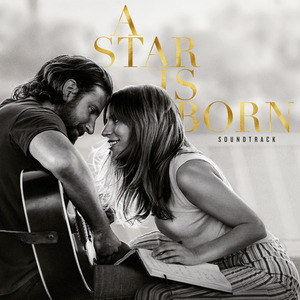
#7: A Star Is Born (2018)
Let me first make this clear — A Star Is Born, the movie starring Bradley Cooper and Lady Gaga? It's a masterpiece. It's electrifying and tragic and I'm still upset it didn't sweep the Oscars that year. There's even a cute dog! You won't hear me say a bad word about it.
But A Star Is Born, the accompanying soundtrack? It's extremely hit-and-miss.
Yes, it includes arguably Gaga's best-ever song and one of the greatest movie hits ever written, "Shallow." And there's plenty of other great tunes in the tracklist too — "Always Remember Us This Way," "I'll Never Love Again," the "La Vie En Rose" cover.
Even the country-rock songs from Bradley Cooper (who, reminder, is not a professional singer) are mostly good! "Black Eyes" RIPS, and "Maybe It's Time" feels like a long-lost classic.
But sadly, there are so many mediocre filler tracks on this thing. The second half of A Star Is Born's hour-plus runtime (Gaga's longest!) is padded with generic songs like "Look What I've Found," "Heal Me" and "I Don't Know What Love Is." The only good one out of the bunch is the silly, intentionally-bad "Why Did You Do That?"
In the movie, these filler tracks serve a point – they're meant to show Gaga's character selling out. They work in the movie when you hear them for a few seconds and see Cooper make a drunkly disappointed scowl. But I don't want to listen to them, and sadly, they make up half the album.
In other words — A Star Is Born would've made an incredible six or seven-song EP. But as an 63-minute-long record? It's a slog.
BEST SONGS: "Shallow", "Always Remember Us This Way," "Maybe It's Time"
WORST SONG: "Heal Me"
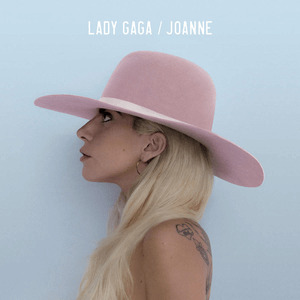
#6: Joanne (2016)
After Born This Way and ARTPOP, I get why Gaga needed to make a more lowkey, back-to-basics album. I also understand that many of these songs have extremely personal lyrics for her.
But is a down-to-earth album what I really want from our most outré popstar? Not really.
Luckily, Joanne is better than that description suggests. Yes, there are some bland acoustic ballads and awkward hippie-era throwbacks (two styles that are really not in Gaga's wheelhouse), but there's also some Springsteen-style heartland rockers! And those go hard in the paint.
Joanne works best when Gaga works the record's dusty aesthetics into her brand of weirdo pop, like on the sizzling "John Wayne," the winking "A-YO" or the delightfully extra Florence Welch duet "Hey Girl."
The record also has "Perfect Illusion" — a glorious red herring of a lead single that sounds nothing like anything else on Joanne. It's a roided-up mixture of woozy Tame Impala production and hair metal histrionics, and it rules. It might be Gaga's best-ever lead single! (at the very least, it's her most underrated.)
And there is one slow tune that's unambiguously great: "Million Reasons," another solid Gaga lighters-in-the-air power ballad pastiche.
Despite what some Little Monsters may tell you, Joanne isn't a disaster. There's some great stuff in there, and even the worst songs are just forgettable. But it's still far from her best.
BEST SONGS: "Perfect Illusion," "Diamond Heart," "Million Reasons"
WORST SONG: "Come To Mama"
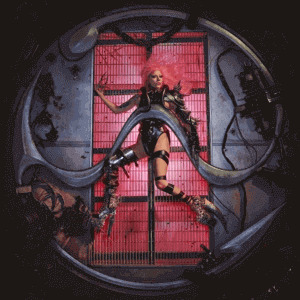
#5: Chromatica (2020)
When Chromatica was released near the start of the COVID-19 pandemic, it had been seven years since Gaga had released music in her classic gonzo-synthpop vein. I can easily picture the record serving as an "ugh fine, I'll give you what you want" response to the many Little Monsters annoyed with Gaga's half-decade of folksy ballads and Julie Andrews cosplay.
I'll say this about Chromatica — outside of The Fame Monster, it's her most consistent record. There's not a single track that's a glaring mistake. And the three singles — "Stupid Love," "911" and the triumphant Ariana Grande duet "Rain On Me" — easily stand among her best tracks.
But although "all bangers, no ballads" album sounds rad in theory, it doesn't really succeed in practice. Chromatica is solid, but it's also a very same-y record. It feels like Gaga had one really great idea for the album ('90s club music with super-depressing lyrics) and repeated it over and over and over again to diminishing results.
There are some songs that are able to separate themselves: the three singles, of course, as well as the goofy "Babylon" and "Sine From Above," the Elton John duet that's the closest Chromatica gets to a ballad. But by the end of the album, you feel more worn out than electrified.
Also — and this is probably unfair, but still — Chromatica came out just a couple months after another retro-dance blockbuster pop album: Dua Lipa's magnum opus, Future Nostalgia. That's not a flattering comparison.
BEST SONGS: "Rain On Me," "Stupid Love," "911"
WORST SONG: "1000 Doves"
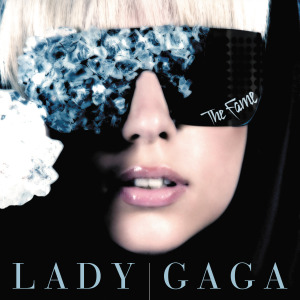
#4: The Fame (2008)
Out of all of Gaga's records, The Fame is most like a time capsule. It REEKS of late '00s/early '10s pop — which isn't an entirely fair criticism, seeing as Gaga popularized that era's sleazy, synthy aesthetic. It's also not a bad thing! I don't mind a little nostalgia!
As you already know, The Fame's singles are masterworks. "Just Dance," "Poker Face," "Paparazzi" — these tracks have titanic legacies for good reason. And although it's probably the least-beloved of this album's hits, despite being a total banger, "LoveGame" should still be commended for having arguably the most Gaga lyric ever (you know, the "disco stick" line).
And even though those tracks are front-loaded on The Fame, there are some gems deeper in the tracklist. "Summerboy" is basically Gwen Stefani covering The Strokes (so obviously, it's great). "Eh, Eh" is adorable. "Starstruck" is the most 2008 song ever recorded, with aggressive Auto-Tune and Flo Rida showing up to make Starbucks jokes.
Sadly, The Fame still feels like Gaga before she became fully-formed at certain points. The back half has a number of songs that feel like generic club tracks forced by the label, and "Paper Gangsta" is one of the clunkiest songs in Gaga's catalogue.
But at the very least, the bad songs on The Fame at least serve as little nostalgia bombs for that era of pop. And the best songs are untouchable classics.
BEST SONGS: "Paparazzi," "Just Dance," "Summerboy"
WORST SONG: "Paper Gangsta"
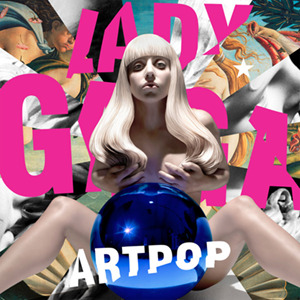
#3: ARTPOP (2013)
For much of Gaga's career, she's been ahead of the curve. She tries something, and a year or a few years later, other popstars try something similar to diminishing results.
That doesn't just apply to the successful stuff, like Gaga's extravagant music videos inspiring many copycats from 2010-2013. It also applies to the mid-late '10s trend of legacy popstars making a controversial record with risky aesthetic or lyrical choices that backfired: reputation. Witness. Man of The Woods.
Gaga did this first, with ARTPOP — arguably the most abrasive, and bizzare major label album released by a major modern popstar. And she did it better, because unlike Swift, Perry and Timberlake, Gaga's weirdness was for real. And it was in service of some prime, hyper-aggressive bangers.
ARTPOP isn't Gaga's best work — some of her experiments on it are major misfires, from the obnoxious "Mary Jane Holland" to the bland Born This Way leftover (and Romani slur-utilizing) "Gypsy."
But when ARTPOP is on, it's ON. The opening stretch in particular, from "Aura" to "Venus" to "G.U.Y." to "Sexxx Dreams," is chaotic synthpop at its finest. Those songs took Gaga's classic sound to an apocalyptic, demented extreme, and they're fantastic.
"MANiCURE" is a great glam-rock banger, "Dope" is another classic Gaga piano ballad, the title track is some sikly-smooth dreampop; even the misguided, clunky trap anthem "Jewels N' Drugs" is bad in a hilarious, charming way!
Trust me: ARTPOP will go down in history not as a flop, but as a gutsy, underrated record from a legend. Less Witness, more In Utero.
BEST SONGS: "G.U.Y.," "Venus," "Sexxx Dreams"
WORST SONG: "Gypsy"

#2: The Fame Monster (2009)
Objectively speaking, this is probably the best Gaga album.
It's her one record with no fluff, no filler — only 34 minutes and 8 tracks, all of them stellar.
It's the record that took Gaga from "wow, this new woman is a fresh new face in pop!" to "this woman IS pop."
It's the record with her signature track, "Bad Romance," which was accompanied by arguably the greatest music video of the 21st Century. (It also has my absolute favorite Gaga track, the relentlessly catchy "Telephone.")
I don't think I need to explain what makes mega-smashes "Bad Romance" and "Telephone" and "Alejandro" great, nor the accompanying legendary deep cuts "Speechless" and "Dance In The Dark." They speak for themselves.
However — the sleek, calculated perfection of The Fame Monster, while incredible, isn't something I return to often. It's just not the side of Gaga that's my favorite. That honor would have to go to...
BEST SONGS: "Telephone," "Dance In The Dark," "Bad Romance"
WORST SONG: "So Happy I Could Die" (but it's still pretty solid)
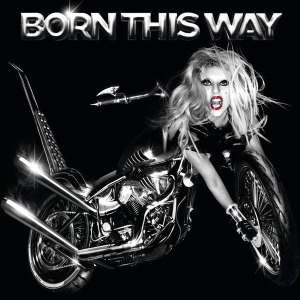
#1: Born This Way (2011)
One of my favorite podcasts is Blank Check. The concept of the show is to analyze each movie by a famous director — in particular, those who had big success early on and then got a blank check to make whatever crazy passion project they wanted. Here's a great example: because Batman was a massive hit, Tim Burton got to make whatever Hot Topic-core movies he wanted to for decades, from Edward Scissorhands to a creepy Willy Wonka remake.
That long-winded tangent is just to say: Born This Way was Lady Gaga's blank check. By early 2011, she had conquered the pop universe, notching hit after hit after hit. Every other pop star was copying her quirky music videos. So the label let Gaga do whatever she wanted — and she didn't waste that opportunity.
Born This Way is wildly overproduced. It's both extremely trend-chasing (those synths were cutting edge at the time but charmingly dated now), but also deeply uncaring about what the teens want (I don't think Springsteen and Queen homages were big at the time). And I love every messy, overblown second of it.
From the hair-metal/synthpop hybrid opener "Marry The Night" to the majestic '80s power ballad "The Edge of Glory," Born This Way starts at an 11. And Gaga never takes her foot off the pedal for the album's entire hour-plus run time. Clanging electric guitars, thunderous synths and Clarence Clemons (!!!) sax solos collide into each other as Gaga champions every misfit and loser in the world. It's gloriously corny in the best way possible.
Born This Way is also the perfect middle ground of pop-savvy Gaga and gonzo Gaga. It doesn't go quite as hard as ARTPOP, but the hooks are stronger. And the oddball moments are tons of fun, from the sci-fi biker anthem "Highway Unicorn" to the goofy presidential-sex banger "Government Hooker" ("Put your hands on me/John F. Kennedy" might be the greatest line in pop history).
Born This Way will always be my favorite Gaga album. It's armed with nuclear-grade hooks, slamming beats, and soaring anthems. Although it's not as untouchably pristine as the Mt. Rushmore of '10s pop classics (for the record, that's 1989, EMOTION, Lemonade and, of course, Melodrama), Gaga isn't best served by meticulousness. She's proudly tacky and histrionic, and so that's what makes Born This Way an utter joy.
BEST SONGS: "The Edge of Glory," "You and I," "Marry The Night"
WORST SONG: "Bloody Mary"
10 notes
·
View notes
Text
My 75 Favorite Albums of 2020
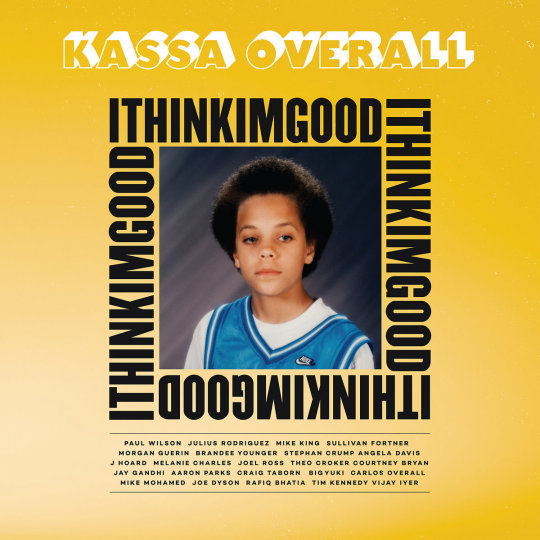
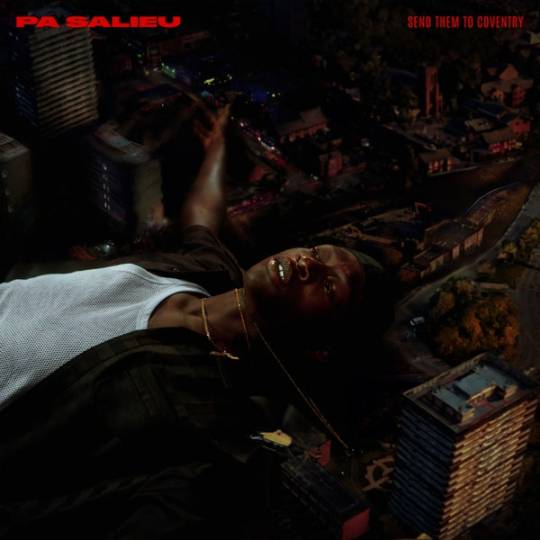
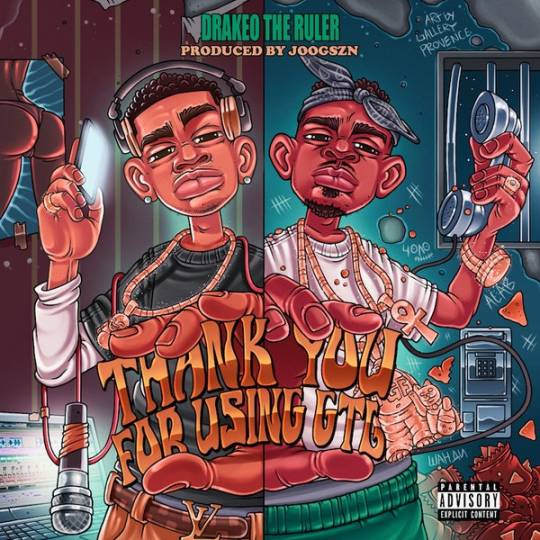
Every year produces excellent music and 2020 was no exception. The exceptional thing about this year, though, is the loss of livelihood so many musicians suffered as a result of the pandemic. To better celebrate all I’ve listened to and loved this year, I’ve expanded my albums list from 50 to 75 albums and included a highlight track from each in the Spotify playlist below. If you like what you hear, why not throw the artist a few dollars on Bandcamp?
Check the Spotify playlist HERE.
Without further ado, my favorite albums of 2020. Happy New Year, and happy listening!
10. Playboi Carti - Whole Lotta Red: Carti’s long-awaited opus has only been out for a week, which is probably not a long enough time to give an album as sprawling and surprising as this one a full critical evaluation. But I do know when I’m hearing something that’s unlike anything I’ve ever heard: this album rearranges hip-hop at the molecular level.
Whole Lotta Red is overstuffed with invention, the glitchy, expansive production giving Carti ample opportunity to glom onto the contours of the beat and experiment with his voice. That voice is the album’s main attraction: it squeaks, it squeals, it roars, it spits, it shudders, and organizes itself into irresistibly ignorant mantras (my current favorite is “Lamborghini parked outside, it’s purple like lean”).
Across its 24 tracks (which feels like too many, sure, but only the 5-minute long Kid Cudi-infected droner “Metamorphosis” overstays its welcome), Carti plays with listener expectations, annihilating rap songwriting conventions (why do you need verse-chorus structure if every line is a hook) as he defiantly proclaims his desire to be unlike anybody else. Though it bears some resemblance in sound and subject matter to Future’s Monster (and much of the production owes a debt to the work of Lil Uzi Vert’s favored Working Of Dying collective), Whole Lotta Red firmly establishes Carti as a totemic figure connecting mainstream and underground sounds.
9. BbyMutha - Muthaland: BbyMutha is a natural born spitter, armed with a drawly stutter-stepping flow that routinely annihilates unconventional instrumentals. She glows with supreme confidence and comfort in her own skin, especially when she’s dripping with disdain with those who’d dare refuse her the respect she deserves. A 25-track opus that earns every minute of its runtime, Muthaland is an engrossing immersion into Mutha’s world, balancing a fascination with the occult (“Sorry I don’t fuck with n****s who don’t fuck with Satan”) with grounding interjections from close friends and her four children. Boasting rockstar fantasies like “Heavy Metal,” bad girl anthems like “Nice Guy,” and dancefloor-ready jams like “Cocaine Catwalk,” Muthaland is a tour-de-force by one of rap’s singular voices, and if she’s really finished with music as she’s claimed (rappers never really retire, but Mutha has indicated she wants to focus full time on her Apothecary), the game will greatly miss her incisive punchlines and crudely empowering perspective.
8. Westerman - Your Hero Is Not Dead: In 2020, Mid-’80s sophistipop grew into one of my favorite comfort foods. Westerman’s Your Hero Is Not Dead struck me directly in the sophistipop sweet spot, evoking the attention-to-detail and synth-heavy craftsmanship of that era and pairing it with harmonic complexity and a piercing emotionalism that recalls his idol Neil Young. On songs like “Blue Comanche” and “The Line,” Westerman constructs tales as twisty as his melodies, economically exploring how people relate to each other at the beginning and end of romantic relationships. Westerman complements his tasteful palette of synth sounds with intricate and lyrical guitar playing, most notably on the sighing, gorgeous instrumental “Float Over,” which softly segues into the title track to end the album on a gently-rising high note.
7. WizKid - Made In Lagos: The focal point of the sub-Saharan Afrobeats renaissance, Lagos is having one of the most exciting musical moments of any city since Kingston in the early ‘70s. WizKid is one of the scene’s biggest stars, with an ability to combine the sonic tapestry of his hometown with Caribbean-influenced beats and vocal styles. Made In Lagos is a masterwork of sound design, bringing creamy bass, chicken-scratch speckles of guitar, tasteful interjections of saxophone and brass, and an intoxicating mix of acoustic and electronic percussion, all offered in service to an immaculate vibe that matches the album cover’s shiny, monochromatic color scheme. Made with lockdown in mind, the album eschews uptempo dancefloor workouts in favor of stress-relief and romance. WizKid plays the perfect host, tamping down his melodic flights of fancy and embracing a song-serving smoothness. He’s a warm and inviting presence throughout, laying out the red carpet for a cross-continental cast of collaborators like H.E.R., Skepta, Burna Boy, and Damian Marley. The result is a truly global pop masterpiece, capable of brightening even the dourest day of a miserable year.
6. Ka - Descendants of Cain: Firefighter by day and rapper/producer by night, Ka is a master of allusion. He organizes his thoughts into themed collections of metaphor, illustrating the bleak realities of street life with gnomic symbolism. On Descendants Of Cain, Ka’s strongest work to date, the enigmatic rapper expresses himself through a litany of biblical references, drawing parallels between ancient parables (he goes far deeper than the Cain/’caine double entendre that rappers have been using for decades) and the stark code of morality with which he lives his life. The 48-year-old hermit produced the project himself, creating an immersive sonic realm, crafting expansive, noir-ish backing tracks populated by late-night saxophones, sparkling pianos, and the occasional shot of sweeping strings. Once again, Ka’s music comes almost entirely without drums (certainly without “beats” in the traditional hip-hop sense–every once in a while, he adds an open hi-hat or a subdued shaker), the artist preferring to let his music swirl around his half-whispered words of wisdom. The album ends on a tearful, sentimental note with “I Love (Mimi, Moms, Kev),” in which the artist ditches the biblical lyrical conceit and expresses his love for his wife, his mom, and his best friend atop light percussion and a warm soul sample.
5. SAULT - Untitled (Rise): Rise is the second part of a diptych that SAULT recorded in response to the movement that exploded in the wake of George Floyd’s death. Black Is, the first part, is a great album (you’ll find it in the lower reaches of my 2020 list), but the mysterious UK collective fulfilled their immense potential with Rise, a propulsive, powerful, and danceable album that doubles as a thought-provoking examination of the nature of freedom and liberation. The album tackles weighty topics–police violence, fake-woke “allies,” protest, cultural appropriation–but handles them with an inspiring effervescence and a propulsion meant to usher right-thinking people into the streets. The music itself is an intoxicating marvel, combining elements from every trendy musical movement from the early ‘80s (post-disco, post-punk, house, hip-hop, whatever the hell ESG was) into a percussive and surprisingly cohesive cocktail. The album immediately makes its greatness known with its first four songs, one of the strongest opening runs of any album in recent memory: the swaggering, funky, keep-your-head-up anthem “Strong,” which features a drum solo from SAULT architect Inflo, the soaring, club-ready vamp “Fearless,” concept-establishing, string-heavy interlude “Rise,” and especially “I Just Want to Dance,” the best song ESG never wrote.
4. Fiona Apple - Fetch The Bolt Cutters: Fetch The Bolt Cutters arrived with the kind of universal acclaim that can make some people suspicious. The Pitchfork review got a lot of attention, not just for its perfect score but for its bold statement that “no music has ever sounded quite like it.”
That statement might’ve been slightly hyperbolic. Fetch The Bolt Cutters has the kind of propulsive left-hand piano figures, chest-thumping percussion, and impassioned vocal performances that we haven’t heard since...the last Fiona Apple album. But the album deserves its experimental reputation. These songs mess around with song structure and melody in ways that resemble avant-garde singers like Meredith Monk, use overlapping vocals that occasionally evoke the works of post-modern composers like Luciano Berio, and echoing modernist composers like Edgard Varese in the way she wrings pathos out of rhythmic elements.
Though Fetch might be a slight step down from The Idler Wheel, it’s an invigorating listen, packed with the soul-baring confessionals that only Fiona is capable of executing. Combining literary wordplay with plainspoken directness, Fiona forces the listener to confront her trauma and contemplate her diagnoses of patriarchal ills. The songs are uniformly excellent–especially opener “I Want You To Love Me,” the most “traditional” song on the record, and “Shameika,” a burrowing childhood rumination with a happy ending–but Fetch The Bolt Cutters stands out to me as a collection of amazing moments: when the jig-like “For Her” fades into an unforgettably painful cadence (“Good mornin’, good mornin’/You raped me in the same bed your daughter was born in”), Fiona’s ground-shaking vocal intensity at the end of “Newspaper,” her dogs howling over the outro of “Fetch The Bolt Cutters,” the winking repetition of the title phrase on “Ladies.” Her albums display more than enough ambition to forgive the long gestation periods, but hopefully we won’t have to wait another 8 years for Fiona to bare her soul once again.
3. Drakeo The Ruler - Thank You For Using GTL: Embroiled in a Kafkaesque legal saga that shines a light on the worst aspects of our horrendous justice system, Drakeo The Ruler spent more than three years wrongly incarcerated for a crime he not only did not commit, but for which he was acquitted (for more info on Drakeo’s ordeal, read Jeff Weiss). He’s now mercifully a free man, mostly due to the work of his lawyer, but at least partially because of publicity generated by Thank You For Using GTL. Recorded over the phone from prison during the height of the pandemic, it’s a miracle that an album created under such sub-optimal conditions sounds as excellent as it does, but credit producer JoogSzn–who not only supplied the creeping, head-nodding backing tracks but recorded Drakeo’s phoned-in vocals–and engineer MixedByNavin for the project’s astonishing fidelity. Drakeo and Joog spent hours on the phone to record the album, in the process paying thousands of dollars to GTL, the predatory telecom company of choice for the L.A. corrections system, whose mechanical interjections serve as a constant reminder of the injustice that made the album necessary. Of course, a good story is a good story, but that alone doesn’t get an album on 2020’s most prestigious Best Albums list (mine). It’s a classic rap album, perhaps the best ever released by an incarcerated rapper, and a thumb directly in the nose of the D.A. and the LAPD. The album is a lyrical marvel, packed with winding wordplay and outlandish flexes, as Mr. Mosley takes aim at 6ix9ine, cackles at sorry-ass Instagram haters, and sneers at American-made cars (“To be honest, a Hellcat isn’t a foreign”). Each song has a carefully considered concept, the rapper’s punchlines building upon one another to make an airtight case for his status as L.A.’s top dog. He contrasts his own whip-crashing lifestyle with flashy wannabes on “GTA VI” and “Backflip or Sumn,” mourns a favorite department store on “RIP Barneys,” and proves he still doesn’t rap beef on “Maestro’s Tension.” The album’s masterstroke comes with “Fictional,” the final track, in which Drakeo exposes the prosecution’s use of his lyrics as evidence in criminal proceedings as the farce it is: “It might sound real, but it’s fictional/I love that my imagination gets to you.” Drakeo’s story was a rare bright spot in 2020, and a rare one with a happy ending. Just last week, the rapper released Because Y’All Asked, a studio-recorded version of Thank You For Using GTL, giving the album’s songs the clarity they deserve. But I think I’ll mostly return to the original, which will live on as an excellent album and a vital document of post-George Floyd America.
2. Pa Salieu - Send Them to Coventry: Hailing from the middle of nowhere–or, more accurately city in the English Midlands only known in the states for its middling Premier League team–Gambian-British artist Pa Salieu served up the most distinctive, visceral, and daring rap debut of the year. His style fuses elements of grime, drill, afro-trap, dancehall, and the darker edges of U.S. hip-hop into a percussive slurry, injected with the urgency of his struggle to survive. The magic of the album comes from the way Pa’s fluid flows interact with the shimmering and foreboding production (Felix Joseph and Aod lead the cast of the project’s sound architects), which is perfectly suited for cold city nights. He slips effortlessly into the pocket, toe-tagging the beats with a combination of aggression and trance-like meditation and uttering casually powerful pronouncements (“I'd make a killa riddim offa any riddim/The grind can never stop 'til I'm wrapped in linen”) that make you believe he’s Britain’s next great rapper. Pa keeps the vibe consistent throughout, but the moments that stand out are the moments when he locks into an unbreakable groove over no-frills production, like on singles “Block Boy,” “Betty,” and “B***K.” The artist’s wry sense of humor and brash confidence keeps the album from feeling bleak, but Send Them To Coventry wisely ends on “Energy,” a warm and bright ode to keeping your creative spark safe from the prying forces of fame and fortune.
1. Kassa Overall - I Think I’m Good: “I think I’m good”–a phrase that’s ran through my head throughout this shitstorm of a year. Sure, I postponed a wedding, cancelled trips, and saw my friends and family much less often than I would like, but I count myself among the lucky ones. Still breathing, still sane. Though it was recorded and released before the pandemic started, Kassa Overall’s I Think I’m Good became a lodestar of sorts for me. It’s a brilliantly introspective and deeply personal album about existing in enclosed spaces–whether a jail cell, an NYC subway car, or the inescapable prison of your own body.
Kassa Overall made his name as a jazz drummer, touring with icons like Geri Allen, but his solo music incorporates elements of hip-hop, classical, and trap to create a wholly original milieu. The album features contributions from over 30 accomplished voices, ranging from luminary Vijay Iyer, to Kassa’s saxophonist brother Carlos Overall, to virtuosic pianist Sullivan Fortner, to venerated activist Angela Davis. But all the disparate elements come together in service of Kassa’s deeply personal and engrossing vision.
Taking partial inspiration from Kassa’s struggle with manic depression, the music fluctuates between meditative calm and unbearable tension, mimicking the patter of an unquiet mind. Album opener “Visible Walls,” is a mesmerizing prayer for salvation soundtracked by fluttering harps, piercing woodwinds, and heartbeat percussion. “Find Me” buries a plea for help within a cacophony of sampled voices and rattling piano notes. Fortner’s piano guides us through the hauntingly devastating “Halfway House” and the Chopin-indebted “Darkness In Mind,” each highlighting a different stage of grief (despair and acceptance, respectively). The arc of I Think I’m Good concludes with the hopeful “Got Me A Plan” and “Was She Happy (For Geri Allen),” a Vijay Iyer-assisted tribute to his late friend and mentor.
It’s ironic that an album that so deeply explores the feeling of isolation vibrates with such a collaborative spirit. I Think I’m Good feels like an answered prayer–a community coming together to check on a beloved friend who’s gone through a tough time: “You good, man?” “I think so.”
Here’s the rest of my list.
11. Yves Tumor - Heaven To A Tortured Mind 12. Shackleton & Waclaw Zimpel - Primal Forms 13. Bob Dylan - Rough & Rowdy Ways 14. Duval Timothy - Help 15. Lil Uzi Vert - Eternal Atake 16. Moodymann - Taken Away 17. Secret Drum Band - Chuva 18. J Hus - Big Conspiracy 19. Headie One & Fred Again - GANG 20. Tiwa Savage - Celia 21. Andras - Joyful 22. Bill Callahan - Gold Record 23. King Von - Welcome To O’Block 24. Flo Milli - Ho, Why Is You Here? 25. Chubby & The Gang - Speed Kills 26. Madeline Kenney - Sucker’s Lunch 27. Empty Country - Empty Country 28. Smino - She Already Decided 29. Destroyer - Have We Met 30. Yves Jarvis - Sundry Rock Song Stock 31. Ela Minus - Acts Of Rebellion 32. Creeper - Sex, Death & The Infinite Void 33. Alabaster DePlume - To Cy & Lee: Instrumentals, Vol. 1 34. Good Sad Happy Bad - Shades 35. The 1975 - Notes On a Conditional Form 36. Kate NV - Room For The Moon 37. $ilkmoney - Attack of the Future Shocked, Flesh Covered, Meatbags of the 85 38. Eddie Chacon - Pleasure, Joy and Happiness 39. Kenny Segal & Serengeti - Ajai 40. Bad Bunny - YHLQMDLG 41. Kahlil Blu - DOG 42. Califone - Echo Mine 43. Boldy James - The Price of Tea in China/Manger On McNichols/The Versace Tape 44. Bufiman - Albumsi 45. Moses Boyd - Dark Matter 46. Thanya Iyer - KIND 47. Jyoti - Mama You Can Bet! 48. Obongjayar - Which Way Is Forward? 49. Rio Da Yung OG - City On My Back 50. Young Jesus - Welcome To Conceptual Beach 51. Owen Pallett - Island 52. Oceanator - Things I Never Said 53. Shootergang Kony - Red Paint Reverend 54. Shabason, Krgovich & Harris - Philadelphia 55. Six Organs of Admittance - Companion Rises 56. Lido Pimienta - Miss Colombia 57. Kelly Lee Owens - Inner Song 58. Polo G - The GOAT 59. Actress - Karma & Desire 60. Phoebe Bridgers - Punisher 61. Porridge Radio - Every Bad 62. Yg Teck - Eyes Won’t Close 63. Mozzy - Beyond Bulletproof 64. Ratboys - Printer’s Devil 65. R.A.P. Ferreira - Purple Moonlight Pages 66. Ulver - Flowers of Evil 67. Rina Sawayama - SAWAYAMA 68. SAULT - Untitled (Black Is) 69. Ezra Feinberg - Recumbent Speech 70. Davido - A Better Time 71. Hailu Mergia - Yene Mircha 72. HAIM - Women In Music Pt. III 73. Half Waif - The Caretaker 74. Key Glock - Yellow Tape 75. KeiyAa - Forever Your Girl
#kassa overall#pa salieu#drakeo the ruler#fiona apple#sault#ka#wizkid#westerman#playboi carti#bbymutha
8 notes
·
View notes
Photo
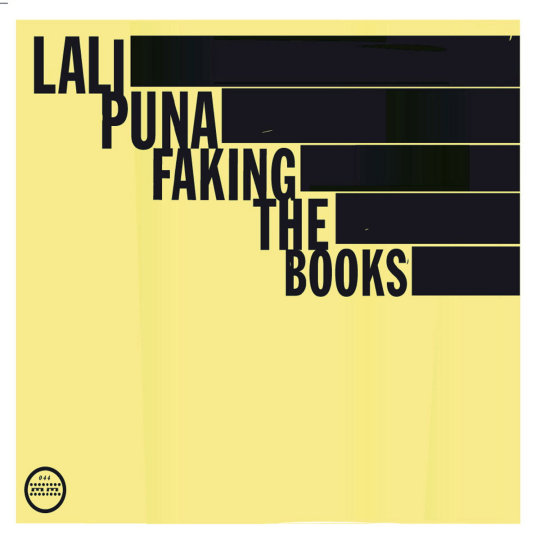
Lali Puna. Faking The Books, 2004. Morr Music. ~ [ Album Review | 1) Pitchfork + 2) Tiny Mix Tapes + 3) Stylus Magazine ]
1) Even now, amidst this international shitstorm of laptop-meets-okay-musician circle jerks, the Weilheim, Germany supergroups-- The Notwist, Ms. John Soda, Lali Puna-- have maintained fairly unique personalities. Let's oversimplify: The Notwist remains the camp's darkest shade, preoccupied with melancholy and perhaps the most electronically involved. Ms. John Soda straddles rock and pop equally, coaching chocolately sweet vocals and the camp's most peppermint hooks. By analogy, Lali Puna is to riffs what Ms. John Soda is to melodies-- this is Weilheim's face of rock, its most outwardly energetic outfit and the closest this town gets to sweaty basement shows and fucking shit up wholesale.
Which doesn't say much, as Lali Puna's idea of fucking shit up on their 2001 release Scary World Theory seemed to be, at worst, breaking into a building and rearranging the furniture. Still, at the time, the album's gruffest tracks offered the most aggressive sounds Weilheim's palatable pop spectrum had yet delivered. And then last year, Ms. John Soda released their heavily rock-oriented While Talking EP, which, though only marginally enjoyable, branched out into harder terrain. Now, with Faking the Books, Lali Puna snatch the Weilheim riffing crown back from Ms. John Soda-- and thankfully, even top their labelmates melodically.
After a pleasant but ultimately faceless title track opener, Lali Puna provide a double-shot of well-wrought rippers: "Call 1-800-FEAR" is the first, boasting a no-nonsense drive, tight instrumental harmonies and undistracting electronic loops that bolster the song's pulse. Atop it all floats bandleader Valerie Trebeljahr's underwater vocals, processed enough so as not to sound incongruous or (gasp!) bedroomy. "Micronomic", the album's second single, follows in similar temperament, and while not my favorite track on the album, speaks to Lali Puna's ability to cradle their listener gently in melody for one second, and to punch him in the face with a dirty riff in the next.
"B-Movie" and "Left Handed", however, are without a doubt the album's standouts, and maybe the best rock songs in Lali Puna's catalog. "B-Movie" pulls off the Kim Gordon sing/speak that Ms. John Soda attempted to lesser success last year: Trebeljahr just nails that been-there-done-that apathy which works so well with the song's contrasting manic rock groove and pointed bass pulse. The loud, guitar-heavy chorus of "Left Handed" steps further away from Weilheim's distinguished trademarks than the band's other material. Its roaring rock factor was a point of contention when it was released as the album's first single, but in the context of the album it doesn't seem out of place at all: The song sports similarly atonal-to-tonal lyric deliveries as "B-Movie", and remains anchored firmly by the nervous, high-pitched synth line that opens the song and rides it out to the end.
As for the rest of Faking the Books, it's pleasant, and hardly unrealized, but it falls just a bit too close to the IDM pop lark that takes up so much space on CD racks and FireWire drives. And on an album on which this band so beautifully exceeds itself with songs like "B-Movie" and "Grin and Bear", tracks like "Geography-5" and "People I Know", which are content to simply be pretty, are just further proof that the gimmick of pairing electronic and traditional rock instrumentation has lost its edge, and that the genre must now rely on stronger songwriting to succeed. That said, Faking the Books is a confident stride in the right direction, and proves that, even within the confines of a tired concept, a great hook still goes a long way.
2) The history of brilliant electronic efforts fronted by mind-altered, bot-driven avatars is not a short one. From Kraftwerk to Devo to Miss Kittin, electronic music has always had a soft spot for people who can sing just like computers can. And, admittedly, it is all pretty cool. There is a certain awesomeness in imitating computers, a turn of the tables from trying to get computers to act like humans (which has never worked out very well).
Problem is, Lali Puna's latest effort, Faking the Books, isn't really going for fun, and there is hardly a wink in Valerie Trebeljahr's vacant, utterly sterile delivery; not even a raised eyebrow. We're talking about corporate takeover in "Micronomic," political corruption in "1-800-Fear," and cheating (!) in title track "Faking the Books"; and that's just the first three cuts. In an album heavy on concept, it all comes off as a trick, utterly unconvincing and disturbingly jaded.
To be sure, Faking the Books is still a worthy effort, and contains some undeniably beautiful moments. A lean string section on "Crawling by Numbers" serves as perfect counterpoint to spare, haunting keyboards. The driving percussion of "B-Movie" is as close to a rock-out track as bastardized IDM has ever previously achieved. And throughout the album's twelve tracks, an unlikely confluence of sound often gives way to the kind of sonic landscaping that few electronic acts can approach.
It's just hard what to make of all of it. Listening to Faking the Books makes you feel utterly alone; and maybe that's the whole point. It's difficult to play the album through and not recall Markus Acher's striking vocals on The Notwist's Neon Golden (who also provides guitars here); he's sullen, fairly quiet and not particularly dramatic, but entirely convincing. I want to believe Lali Puna. I just need for them to believe, too.
3) Lali Puna is one of the myriad groups putting out consistently intriguing material without taking the final step toward a defining masterwork. Their first album, Tridecoder, was often sterilized by their Stereolab-worship, and though they progressed towards a Teutonic amalgam of their own with Scary World Theory, they were still hampered by peculiar translation barriers. Often the lyrics came out deadened and awkward, as though misled by a translator fond of cruel pranks (the title track and its allusion to the ‘cookie monster’ was particularly strange). On their newest album, Faking the Books, Lali Puna move one step closer to triumph. They touch greatness at several points, if never truly digging their nails in and grabbing hold.
Opening with the gorgeous stuttering vocal samples of the title track, Lali Puna establish the same vague working area as previous works, but there is a distance in the similarity. It’s as though you’ve just met a good friend’s identical twin, and he’s posing as your friend. His voice sounds different, and he parts his hair wider of center. He doesn’t use the same expressions, and there’s a gleam in his eye that tells you something’s up. The driving organic rhythms of “Call 1-800-Fear” remind of much of the first album, but just as you become accustomed to its propulsive thrust, the drums fade into quick-stepping electronic beats and a solemn piano muffles the song into a deep restless stirring. “Micronomic” uses a similar mechanical breakdown to cool down its squelched sax blurts and lively drums.
Perhaps the greatest difference is Valerie Trebeljahr’s improved emotional range. At times in the past, she was content to play the heroin-dead heroine, reclining with sang froid and cold Germanic grace into an emotional deadpan. On many of Faking the Books’ best songs, Trebeljahr reaches beyond this detachment to an impassioned query, giving the album a greater sense of depth and development. Suddenly, even in the face of vague uncertainty, Trebeljahr seems more confident, more willing to put her ego on the line and risk a sullen retreat. “Geography-5” finds her alluring and come-hither, and since the song is built upon one of the album’s simplest arrangements, her voice is the necessary focal point. Atop a simple bass-drum part and twilight chimes, she sweats out a sexuality that doesn’t bring to mind black leather, dog collars and torturous candle wax. On the gorgeous closer “Crawling by Numbers,” she similarly warms up the chorus with a beautiful reach—the juxtaposition of her voice with the song’s dirgeful strings making for a mesmerizing finale.
For the first time, Lali Puna’s control doesn’t seem so absolute. It’s possible that they aren’t cooler than you are (though it’s still likely). A few cracks have spread in their frozen facade, and that sudden vulnerability, glimpsed in the desperate “Do you?” on “Alienation” and the minimal aquatic squiggles and tribal drums of “Small Things,” makes the group that much more compelling. They work under the protective hush of simplicity at times, and this sparseness allows the broken-nosed shatter of their more propulsive material the intended effect. They aren’t there yet, but the maturity on Faking the Books serves as notice they may only be one album away.
#pop music#electronic music#leftfield#lali puna#morr music#2004#2000s#2000s rock#rock music#pitchfork#tiny mix tapes#stylus magazine#review
6 notes
·
View notes
Text
How 2020 Turned Me Into A Swiftie Again
If you’d told me a few years ago that I’d have not one but two Taylor Swift albums in my year-end favorites list, I would’ve thought you were out of your mind. Then again, stranger things have happened in this hellscape of a year.
I’m really not sure where the first time I heard the phrase “Life is too short to pretend to hate Taylor Swift” was. I have no idea who originated it, but it stuck with me when I started to unpack that about a year ago, during her Lover era. By then, my perception and feelings about Taylor had been very... inconsistent, to say the least. I started out as a full-on stan, then it dwindled from there overtime until I basically became a hater, which then turned into indifference but silent respect. Now, I’m pretty much on the road to becoming a stan again. Revisiting her catalog, analyzing her lyrics, watching interviews, the works.
I wanted to examine what it was that made my opinions about her go through so many steep rises and falls within this entire decade. Part of it was her shift in musical style that I didn’t quite mesh with, but another part was owning up to the internal biases I had when I was younger and how gullible I was in going along with whatever the media or the popular conscious was saying about her and the kind of person she is.
I’m somebody who’s incapable of separating art from the artist. I simply don’t listen to artists when I don’t like them as people or don’t agree with their actions. Examples include but are not limited to Kim Petras, Melanie Martinez, Azealia Banks, Grimes, just to name a few. I have my own personal reasons for just not wanting to engage with any of their music, and if you still want to, that’s none of my business.
At some point in my life, I think Taylor got on that list. Looking back on it now, I find that completely ridiculous, because she never really did anything or acted in a way that warranted that reaction out of me. So I wanted to delve into how that even came about in the first place.
With that said, I want to take a trip down memory lane and go back through her eras, and go through the timeline of my strange relationship with Taylor Swift’s body of work as well as her public persona. Fair warning, it’s gonna be really cheesy and emotional at parts, but it is fully my truth. Thank you in advance if you manage to read the whole thing.

Part 1: The Country Era
It’s 2010 and I’m in eighth grade. I’m in an extremely Muslim country, the only son of an extremely Muslim family that enrolled me in an extremely Muslim school. I’m getting bullied by the boys in my class for being too feminine and being ignored by the girls for being a boy. The last close friend I had from elementary school had just moved away the year prior, and I’d never felt more alone in my life.
I was a closeted gay kid still trying to figure himself out and hating who he was. I escaped to cringey online chat sites like IMVU and catfished as a girl, because at the time I thought the only way to get boys to like me and want to be with me was to pretend to be someone else, someone I actually liked.
When I think back on this era, I mostly remember the girls in my class obsessing over these three albums and singing her songs with each other all the time. I desperately wanted to join them and fangirl with them over her music, though of course they never gave me the time of day. I remember I would memorize so many of her songs and write them all down on a special notebook I kept. When I wasn’t paying attention in classes, that’s what I would do; scribble out a collection of all the songs of hers that I knew by heart.
To me, these three albums represented a certain kind of vivid fantasy. Taylor’s songwriting has obviously grown exponentially over the past decade, but even back then she was always so damn good at storytelling and detail, painting you a very clear picture of a scene and placing you right there. For a miserable, self-hating fourteen-year-old gay boy that was always seeking escapism from a homophobic environment, this was the perfect outlet for me to live out a different kind of life, to play pretend.
I honestly can’t explain what it is about her style of songwriting but she always made me feel like I was genuinely experiencing everything she was talking about. Things like kissing in the rain, riding around in the truck of the boy of my dreams in a tiny one horse town, shedding teardrops on a guitar that I definitely didn’t own, experiencing crushing heartbreak. This was stuff that my sheltered ass couldn’t comprehend.
Taylor perfectly captured that ideal, that small town girl with big dreams and storybook romances. I was in love with her discography at the time, having memorized pretty much the entirety of Fearless because that was my favorite of three. Middle school was hell for me, but her music was definitely something that helped me pull through, because she sent my imagination into overdrive.
This was a time in my life where I didn’t really care yet about an artist’s public image or the media’s portrayal of them, It was purely about the music for me. Of course, when looking at these albums now, there were a few questionable choices she made lyrically, I have to admit. Particularly with songs like “Better Than Revenge” and “Innocent”, both having aged terribly with the former being bafflingly misogynistic and the latter being about Kanye. As of my writing this, Taylor is currently in the process of re-recording her old catalog, and I assume that she would skip these two songs in particular, as well as several others that haven’t exactly aged well.
This era really got me through some tough times and she provided much-needed relief for me within each of these three albums. I’ll always have an attachment to them because of the bittersweet memories they represent.

Part 2: Red
Red I decided to put in its own category, because this was kind of a weird era for Taylor. Even back when I was an ignorant teenager that barely had any critical thinking skills, I felt the dissonance of this album and its Max Martin produced singles. This album represented Taylor dipping her toe into pop music, which she made abundantly clear when she decided to release We Are Never Ever Getting Back Together as the lead single.
I actually remember this moment quite clearly. She premiered the single at some kind of fan event that I believe was streamed live on YouTube, and either I watched it live or I watched the full recording of it later on. At the time I remember feeling it was kind of bizarre to hear Taylor adopt this style of music, because it was so drastically different from her previous work and it took me a while to adjust. Obviously I enjoyed pop music at the time as much as I do now, but I just hadn’t been expecting it to come from Taylor.
Fortunately it was just the three singles that were full pop, and the rest of the album still had her signature DNA and also includes some of her best work. All Too Well, for example, is I think one of the best songs she’s ever made, if not the best. I think if I were introducing Taylor to someone that’s totally unfamiliar with her, that would be my first choice, because it’s a masterwork in songwriting and emotionality.
I do think the thing that irked me the most about this album and era, even to this day, was the lack of cohesion. Of course I figured that she would eventually venture into pop music, but the way in which she did it just felt a bit too jarring to me. Perhaps if the album had a more even distribution of pop songs and country songs, it would’ve been slightly more palatable for me. It’s not even that the three pop songs were bad; they were quite good for their time. Though to be completely honest they’re the songs I barely ever return to any time I listen to Red now. They’re the kind of catchy pop songs where it’s difficult not to get sick of them at a certain point in your life. I’ve grown to really dislike the lead single, and even 22.
Her image was also starting to get much more scrutinized by the media around this time. I think this era probably marked the sharp rise of the “Taylor Swift has too many boyfriends!” argument people loved to throw around. I wish I could say I was smart enough to not buy into that shit at the time, but I wasn’t. While it didn’t bother me, it was something that I wondered about, why she dated and broke up with so many guys at such a young age. It was something that I judged her for. Obviously I didn’t yet understand that it was normal for people her age to date around. Plus it gave her some great material.
By this time, Taylor was making the gradual transition of country sweetheart to pop star, and while Red was kind of a rocky start to that, naturally she managed to pull it off. But not quite flawlessly.

Part 3: The Pop Era
Okay, I have a lot to say about these girls.
I think this era started off strong with 1989. It was a more fully realized version of Taylor’s little pop experiment, and it actually had the cohesion that I needed to be able to fully adapt to this new style she’d cultivated. She wrote yet another one of her best songs with Blank Space, which I like to think was a precursor to Reputation (and dare I say that one song did Reputation’s concept better than that album as a whole?).
However... Shake It Off. I’m sorry, I just hate that song.
WANEGBT, the first single off of Red, isn’t exactly the best song either but it made sense as to why she chose that as the first single. It was to signify her dabbling into pop. Reputation’s first single I also am not the biggest fan of, but again, made perfect sense as an introduction, but I’ll get to that later. Shake It Off, though? For the life of me, I have no idea why this song was the first single. Or to be frank, why it was even on the album at all.
I’m sorry y’all, I just hate it. Everything about it. The verses, the chorus, the appalling rap bridge. She should’ve kept that song in the drafts and released Blank Space as a first single, and that’s a hill I’m willing to die on. Sorry Shake It Off stans, but I’m sure all three of you will get over it. ❤
That said, 1989 had some excellent songs, and I was finally starting to get used to Taylor doing pop. However, my excitement and enthusiasm for her music started to falter due to my weak mind at the time once again getting swayed by the media.
This time, I began to see Taylor as someone that seemed to be very calculated and conniving in the way she curated her image. Something that didn’t sit well with me was the “girl squad” stuff, and how all of the women she surrounded herself with were essentially these supermodels with unattainable beauty standards, and also believing the rumors about how certain famous women were given private requests to join Taylor’s “squad”. And then of course, the Kim and Kanye thing happened. #TaylorSwiftIsOverParty trended worldwide, and that was probably my earliest exposure to an instance of a celebrity getting canceled, so I was just happy to join the bandwagon. My opinion of her shifted like that, and it’s crazy to think about it now, how I barely had the capacity to form my own opinions and was easily influenced by everything I heard.
Despite me kind of joining the Taylor hate train, I did like Reputation as a concept. I liked how she disappeared from the public eye and came back being like, “You want me to be the villain? The snake? Fine.” Look What You Made Me Do, as I mentioned before, was the perfect choice for the first single despite the song itself being sonically....not the best. The music video and the line about how the old Taylor couldn’t come to the phone was an iconic moment in pop culture, I have to admit that.
I didn’t listen to the album as a whole until later, though. I was having my own hang-ups about Taylor that I think are silly now, but at the time when I didn’t like an artist I would mostly avoid their work. When I did listen to the album, though, I thought it was... okay. There’s one standout track to me and that is Getaway Car, and it’s the only song from Reputation I can say I fully adore to pieces. The other songs on there I either just like, or I find to be meh at best. (Also I know Ready For It is objectively a bad song but I really enjoy the chorus, don’t @ me, @ god)
A few years later, Lover happened and.... Once again, horrible first single. ME! is a genuinely atrocious song, and I have no idea how esteemed, prolific songwriter Taylor Swift managed to reach a point where she had a song with the phrase “spelling is fun!” in it. I feel the exact same way about this song as I do about Shake It Off. It had no business being in the album whatsoever.
As far as Lover the album goes, this came out around the time where I was kind of feeling indifferent toward Taylor (which is hilarious if you know what the first track on it is). I was much more politically aware and had learned not to put too much faith in white women, and I was focusing on other artists so much that Lover barely even came onto my radar. I listened to it once, thought it was meh, and moved on. I revisited it earlier this year and realized I was a bit too harsh on it the first time around. Sure it was her weakest album overall, but it wasn’t bad by any means. It was perfectly alright, and there were songwriting moments within it that were still quite strong. The title track and also Miss Americana comes to mind as standouts.
She started to become more vocal politically around this time. A lot of people thought it was too little too late, which was a fair point. However to me it made sense that she stayed tight-lipped about politics when she was younger, considering she was operating within the realm of country music. Plus, upon watching her documentary, it was pretty clear she had old white men behind the scenes telling her what she should or shouldn’t say, to make sure she maintained that all-American country girl sweetheart image. Still, I do agree with the people who thought that she should’ve used her platform sooner.
Oh and for the record, I think You Need to Calm Down is a terrible song. The video was cute, and the message behind it is fine, but I just hate it sonically.
At this point my interest in Taylor was probably at an all time low. The era started off strong with 1989, but it progressively got weaker. She just wasn’t really giving me much in terms of lyricism, and her pop productions were starting to blend together to the point where a lot of them were sounding very same-y. Lover to me marked the point of stagnation in her music; it was solid enough, but it just wasn’t going anywhere. We’ve seen Pop Taylor, she was cute for a while, but what else? Where does she go from here?
Well... She went into the woods.
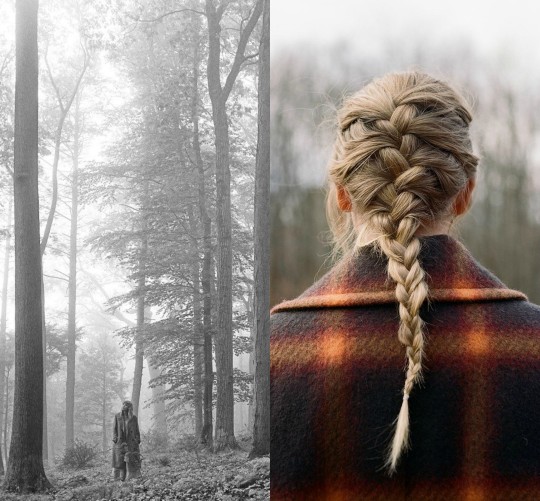
Part 4: The Cottagecore Sisters
When I heard about Taylor dropping a surprise album, I suppose I was intrigued. She is one of the few artists that are successful enough to be able to make a move like that and cause a lot of buzz and excitement. I didn’t think much about it though, because my 2020 at that time was still inundated with SAWAYAMA and Ungodly Hour on repeat. On a whim, though, I decided to listen to it one day, not expecting much out of it.
Earlier when I was talking about her country era, I mentioned that Taylor’s storytelling and her penchant for detailed descriptions were my favorite parts of her writing. Her innate ability to transport me into other worlds, to provide escapism when my life became too much to deal with. I feel like these aspects were missing in the several years that Taylor focused on pop music. There were flashes of it in some of her later work, sure, but very few. She was becoming a huge mega superstar and her songs started to lose that sense of relatability that had been easy for me to latch on too. These things definitely contributed to my loss of interest for her work in general.
And then Folklore managed to bring me back to that place of fantasy I described before, but heightened. Elevated. Evolved. This is why I think that Folklore is Taylor Swift’s magnum opus.
Storytelling is without a doubt her strongest skill as an artist. To be able to construct not just a narrative but an entire world through songs is not something anyone can pull off. Throughout her pop era, there was always that something missing because I knew that she was capable of more. I couldn’t explain it well back then, but despite her penmanship still being commendable during those years, it still felt oddly lackluster. I knew she could do better, but I didn’t have the proof yet.
This is it. Both Folklore and Evermore showcase exactly what I knew she was capable of. This is Taylor Swift at her most creative, at her full power.
I think in a recent interview I watched (though I can’t remember which one), even she herself acknowledged how it would’ve been a disservice to continue strictly writing autobiographical songs, and so she decided to write from the perspectives of multiple different characters while also occasionally inserting herself and her life experiences into these narratives. She essentially created her own folklore and managed to make me invested in characters that don’t even exist.
I have to talk about the love triangle trilogy: cardigan, august and betty. It’s a testament to her songwriting ability that these fictional characters feel like real people. The story of Betty, James and Augusta/Augustine is just so well done to the point where I forget that it’s Taylor Swift singing. When I listen to these songs, I am fully imagining the characters she conjured up.
The song that I find the most profound out of the three, and also happens to be my favorite song on the album, is august. To me, it is the most heartbreaking song out of all of them. I relate so much to that girl who’s hopelessly in love with someone that just doesn’t give a shit about them and is merely using her for a summer fling. And it’s not even like I’ve experienced something similar to this in real life, Taylor just somehow made it relatable with the sheer power of her pen game. It’s even more heartbreaking considering we don’t know what happened to this girl, if she ever managed to find happiness, because in the Long Pond Sessions Taylor mentioned that Betty and James eventually got back together. They got their happy ending, but what happened to Augustine?
I can’t believe she’s got me this deep in my feelings over non-existent teenagers, I swear to god.
Just when I thought Folklore was going to be the end of this new side of her for a while, she releases Evermore in December, its sister album. While I don’t think it’s quite as strong as Folklore, it still delivered immensely in terms of lyricism, productions and vocals. Evermore’s release pretty much solidified the realization that I was basically becoming a Swiftie again, a whole decade later.
I was embarrassed by that thought at first, but honestly now I’m at a point where I don’t think there’s anything to be embarrassed about. Taylor is too skilled of a songwriter for me to consider her a guilty pleasure. I just needed something to help me come to that conclusion, and these two albums did just that. She finally gave to me what I was waiting for.
Final Thoughts
I don’t really stan artists the same way I used to now, which I mentioned previously in my review of Chromatica. I don’t deify them or hold them to an impossible moral standard they could never live up to anymore. I see them as flawed human beings that have the capacity to make great art. So when I say I’m becoming a Swiftie, I’m still fully aware that Taylor Swift is a thirty-one year old rich white woman who is bound to have shortcomings and missteps as a person. In my mind, she hasn’t done anything drastic enough or stupid enough for me to become uncomfortable in listening to her work. I had my own ideas about how she could’ve been fake, conniving, manipulative or whatever else the media was trying to convey about her, but there really is no way of knowing who she truly is as a person.
Celebrities and influencers have the power to curate their image however they want. The relationships they have with us, the audience, are entirely parasocial, so of course we base our judgments of them based on very limited knowledge, or just the surface-level view of what they’re like. I don’t know if Taylor is as down to earth and genuine as she appears to be now, and I honestly don’t need to know. If she does things I disagree with or acts a certain way that deserves criticism, of course I’d still call her out, and depending on the severity of what it was she said or did, it might end up with me not wanting to engage with her work anymore.
But the reality is, as a person, I’ve realized that she is just fine. I was holding on to a certain idea of her in my head where I think at one point I dubbed her “the Anne Hathaway of music”, meaning someone that comes across too perfect to the point where it seems calculated and disingenuous. But honestly, I just don’t feel that way about her anymore. I don’t feel particularly attached to her as a person, either.
But I do feel an attachment to her music. At the end of the day, that’s where I’m standing now when it comes to her. I don’t have any expectations or delusions about her as a human being, and I’m not going to remain devoted to her if she does something dumb, but I believe that she is an insanely gifted artist who has written so many songs that genuinely speak to me and make me feel intensely. She lost me for a while, but now I’m right back in it.
So yeah, like I said in the beginning of the post, life’s too short to pretend to hate Taylor Swift. I’d rather just pretend to live in a mystical small town as a sad gay witch. And I’m at peace with that.
3 notes
·
View notes
Link
The day has finally come! Today, Turilli / Lione RHAPSODY - the new group featuring original RHAPSODY members Luca Turilli and Fabio Lione, completed by former RHAPSODY members Dominique Leurquin, Patrice Guers and Alex Holzwarth - release their debut album Zero Gravity (Rebirth And Evolution) via Nuclear Blast (King Records in Japan & Rest of Asia). To mark the occasion, the quintet has unveiled the official video for the record's title track, which was produced by Panda Productions (EPICA, EVIL INVADERS, ABORTED, DIABLO BLVD. etc.). Watch it now over on YouTube: https://youtu.be/1-DlF1H9Vro Order Zero Gravity (Rebirth And Evolution) now: http://nblast.de/TLRhapsodyZeroGravity Listen to the band's new tracks in the NB New Releases Playlists: http://nblast.de/SpotifyNewReleases| http://nblast.de/AppleMusicNewReleases Luca states, "Zero Gravity (Rebirth And Evolution) is surely a special album for all of us. It's original, various, modern, intense, symphonic and progressive, built around the vocal skills and unique talent of Fabio. In short, the perfect album of transition from the power/speed metal of the past to a new generation of modern symphonic metal offering us new exciting artistic stimulations, wider perspectives and future possibilities. After the farewell tour, we accepted to be part of this new adventure only if we could have realized a debut album like this, closer to the music we like to listen to nowadays. We refused any compromise or any easy commercial operation. Time is running fast and in this moment of our life, as we always did until now, we chose to create some new music respecting our heart and soul, as art should always rhyme with heart. Low tuned guitars and riffs à la RAMMSTEIN, vocal arrangements à la QUEEN, the progressive elegance of DREAM THEATER, the powerful yet ethereal and rarified atmospheres of bands like NIGHTWISH and WITHIN TEMPTATION, electronic music, ethnic instruments from different geographic areas of our wonderful planet…no artistic limits anymore. We trust in our beloved fans and their fundamental support for this being just the beginning!" Fabio adds, "Zero Gravity (Rebirth And Evolution) is the album we always wanted to do and a new beginning for us, there's really a lot of stuff inside and surely something unique and original. Every song offers a different musical adventure, this record is fresh, various, modern, intense, symphonic and progressive. I'm sure most of the listeners will be surprised and will enjoy the variety and the different "colours" we can offer in the songs. Thanks to our fans we were able to have a great production and the perfect album to start our new path with this unique new band and sound!" ICYMI: Check out the lyric video for the first single, 'Phoenix Rising', here: https://www.youtube.com/watch?v=67XM8w3o5mg Listen to new track 'D.N.A. (Demon And Angel)', which features guest vocals by AMARANTHE vocalist Elize Ryd: https://youtu.be/dMgdGkp51X4 Learn more about the band's image and music, here: https://youtube.com/watch?v=rui3QSj0GDw Learn more about the lyrical concept and artwork for the new album: https://youtu.be/odMRWxFy2Wk Learn more about the production and recording process for the new album: https://youtu.be/czpHv_pyH1M Learn more about touring experiences and future plans for the band: https://youtu.be/Htg4ULfWNY8 Zero Gravity (Rebirth And Evolution) track list: 01. Phoenix Rising 02. D.N.A. (Demon And Angel) [feat. Elize Ryd | AMARANTHE] 03. Zero Gravity 04. Fast Radio Burst 05. Decoding The Multiverse 06. Origins 07. Multidimensional 08. Amata Immortale 09. I Am [feat. Mark Basile | DGM] 10. Arcanum (Da Vinci's Enigma) Bonus Track (DIGI & 2LP only) 11. Oceano [feat. Sascha Paeth | AVANTASIA & Arne Wiegand | SANTIANO] Comprised of 10 tracks, the record was produced by Luca and Fabio themselves, whilst Simone Mularoni (Domination Studio, San Marino) took care of its recording, engineering, mixing and mastering. Guest appearances by Elize Ryd (AMARANTHE) and Mark Basile (DGM) among others round off Turilli / Lione RHAPSODY's first studio album. The contemporary cover artwork was designed by Stefan Heilemann (EPICA, PAIN, LINDEMANN etc.), who has previously worked on both Luca Turilli's RHAPSODY records. Luca states, "Zero Gravity (Rebirth And Evolution) is much more than an album title. It is a real band mantra underlining the evolution of a great artistic collaboration, a modern-day approach and the intention to evolve the band's sound to a new frontier, conceptually, musically and lyrically. This debut album will definitely present the multiple faces of our new band modern ultra-heavy guitars, a vocal roller-coaster inspired by QUEEN's masterworks, dramatic arrangements, breathing soundscapes enriched by ethnic music elements from different continents and surely the most emotional and intense lyrics we ever had. The new artwork realized by Heile represents the synthesis of such evolution and the deep heartfelt message related with it!" Adds Fabio, "Zero Gravity (Rebirth And Evolution) represents the perfect evolution of a musical vision we had, a great artistic collaboration to create a new fresh sound with amazing ideas, great production, hard work from great musicians and people involved and most importantly, a fantastic start for this new band. The new artwork realized by Heile represents the synthesis of such evolution in music and amazing work that underlines the musical adventure you will have and feel listening to the record." In support of the album, the band set up a crowdfunding campaign to finance the recording process, through which they collected an overwhelming amount of €60,000 from their loyal and dedicated fanbase. Turilli / Lione RHAPSODY live: 05.07. E Barcelona - Rock Fest 06.07. I Taneto di Gattatico - Circolo Arci Fuori Orario 09.07. H Dunaújváros - Rockmaraton 11.07. CZ Vizovice - Masters of Rock
26.09. FIN Helsinki - The Circus 27.09. S Stockholm - Fryshuset Klubben 28.09. RUS Moscow - Red
01.10. J Tokyo - Tsutaya O-East *NEW* 02.10. J Tokyo - Tsutaya O-East *NEW* �� 03.10. J Nagoya - Bottom Line *NEW* 04.10. J Osaka - Umeda Club Quattro *NEW*
10.10. AUS Sydney - Crowbar 11.10. AUS Brisbane - Crowbar 13.10. AUS Melbourne - Southern Gathering More info: tlrhapsody.com facebook.com/tlrhapsody nuclearblast.de/turilli-lione-rhapsody
3 notes
·
View notes
Text

Track by tracking
Red Stars Theory’s
But Sleep Came Slowly
Rx Remedy, 1997
4, 7, 19
I first became aware of Red Stars Theory back in ‘13, when I was steadily diving deep into last.fm’s Similar Artists rabbit holes. Their album covers were what initially drew me in, and in a short time, their music would solidify my love for their (sadly) short discography. Their sophomore record, titled Life In a Bubble Can Be Beautiful, was in heavy rotation around that time. And although thinking back to those years brings fond nostalgia, I admittedly didn’t give much attention to their label debut, released two years earlier before their second. It’s sad to think that it took me six years to fully appreciate this masterpiece.
Preferring this record to their second is assumedly blasphemous, from the looks of the constant praise it’s predecessor receives still to this day. (Also note how iTunes and streaming services have most, if not all, of their Singles and EPs, and this record is nowhere to be seen. I had to purchase the physical copy from Sub Pop’s Marketplace to finally get a decent sounding recording of the album on my phone, and that’s just disrespectful.) Its sound and style isn’t too drastically different from their material onward, and some have argued that its “less musically adventurous” approach to their sound and style makes it a low point. If you ask me though, this record perfects the long practiced and huge combination of post hardcore and post rock. The longer tracks emulate the hypnotic and epic heights of Godspeed You! Black Emperor in their early years, and their emotionally driven and explosive shorter cuts take the best pages from the books of the early pioneers of emo.

Track One,
Heavyweight January
A beautifully delicate and driven opener to this album. The swirling violins mixed with the soft yet loud lead guitars set a serene landscape for the soft spoken vocals that glide through the backing tracks crevices. The emotional heights of the booming chorus section are a great foreshadow for the rest of the track list. It’s really nice to drive down your friends old neighborhoods and hangouts with this on.
Track Two,
I Thought About You
A simultaneously hopeful and depressed jam of swaying guitars and strings. The consistent mellow mood with moments of emotional clarity peppered throughout this longer track makes it incredibly easy to get lost in. Coupled with the single line of lyrics that rise from the fog on the back half of the piece that are followed by a gorgeous climax, shows that this track is a great example of their masterful songwriting.
Track Three,
Perfection Is
A great entry into the infrequent practice of experimental/progressive post hardcore. The beginning verses come off casual and calculated, only to then morph into a cacophonous dark prog. bridge that employs shouted confessions over a looming and large folly of guitar feedback and never ending cymbal crashes. The chorus juxtaposes these sections perfectly, with a low tide tumble of plucked melodies and a retreated statement of love. One of the genres most valuable hidden jewels.
Track Four,
Becomes for the Kind
Scenic post rock with psychedelic undercurrents. The lead guitars and ascending drum patterns transport you to a cross country like trip that consistently evolves and shines. The second half of the track begins to involve xylophones and sirens in a misty smother that slowly begins to drown and distort the back instruments, making the end of your trip hazy and brilliantly weird.
Track Five,
Nitetime Memories of the Coastline
A hand-in-hand stroll through a strangers memory lane that grips and nuzzles into the romantic everydays of lost teenagers on shorelines. The lyrics list out fragments of images, feelings and friends that come forward scatterbrained, yet not incomplete. They’re softly sung overtop beautifully sad violins and straddling guitar chords with a scarce yet powerful back beat. The second main section of the track dips below the murky waters to find a despairing undertow of breezy and elegant strings and long winded guitar strums that bring a dose of reality to the daydream right before it. One of the best works, period.
Track Six,
Broken Neck
A tried and true emo masterwork. The opening melodies bring melancholy and looming darkness to the strained lead vocals that tell a story of red flags and concerned conversations that hold you on its every word. These sections eventually explode into a sunset colored roar of guitars and high notes that shout to the heavens, leaving you in awe of its sheer weight. It’s followed by an rising action instrumental section with a fast paced second climax that heroically tightens the tie up of the track, which in all leaves the listener feeling as if they’ve witnessed a fight between star crossed lovers with nothing but damage left in its wake. A musical triumph.
Track Seven,
Thick with the Paint Swaying
The long and winding closing number that builds higher and higher until it reaches the stratosphere. Again, the band flexes their post rock expertises with drifting guitar melodies and gorgeous singing from frequent collaborator Lois Maffeo. The drums become the growing backbone for the piece in the second half once the softer first half fades out into the ever evolving landscape, leading the rising guitar chords upwards and outwards. The minute you feel like you’ve settled into the fast paced rhythms, you’re dropped into a cloudy headspace of free flowing chimes and strums, only to then become suddenly shocked by a lightning strike of blasted guitars and a louder-than-hell drum freak out. The album ends with everything crashing to the ground from enormous heights, akin to the sound of a Red Giant somewhere in another galaxy dying and falling in on its self, leaving a deafening silence in its aftermath. Truly the only proper way to finish out this incredible record.

(You should be able to find this whole album on YouTube. If not, there’s still physical copies available online!)
#red stars theory#modest mouse#764-hero#indie rock#post rock#post hardcore#but sleep came slowly#music#musicordie
7 notes
·
View notes
Text
youtube
"His 'n' Hers" by Pulp: The Album That Defined an Era by The Vinyl Digest Ignite your Britpop passion and prepare to discover Pulp's legendary 1994 album, "His 'n' Hers" - the masterwork that launched Jarvis Cocker and his fellow musicians to fame. Immerse yourself in an enticingly seedy compilation of tracks that highlight Cocker's exceptional storytelling, illustrating vivid images of blue-collar existence. Uncover how "His 'n' Hers" positioned Pulp as one of the most influential bands of the '90s, featuring unforgettable lyrics and irresistible melodies that epitomized a generation. As you navigate the mesmerizing fusion of synths, guitars, and Cocker's signature vocals, delve into the album's unique Sheffield sound - an amalgamation of glam rock and new wave that still captivates listeners today. Critics have praised the record for its perfect marriage of style and depth, and now it's your turn to experience the allure of "His 'n' Hers"! Did you enjoy the video? Share your thoughts in the comments below! https://www.youtube.com/results?search_query=pulp via YouTube https://youtu.be/3Kbn3sFVO4Y
0 notes
Text
The Eagles’ Hotel California exemplifies musical brilliance, its shimmering light drawing listeners into a realm where sound and story intertwine with unparalleled grace.
youtube
Released in 1976, this masterpiece stands as a monument to rock music, its enduring power resonating through the decades, as vibrant today as it was nearly half a century ago.
The lyrics unfold like a mystic parable, painting a vivid scene of a weary traveler stumbling upon a surreal hotel. With phrases like “warm smell of colitas” and “voices down the corridor,” the song conjures a haunting narrative that feels both intimate and universal. Its words dance between heaven and hell, offering layers of meaning—whether a meditation on American excess, the seductive trap of fame, or the inescapable pull of addiction. The iconic line, “You can check out any time you like, but you can never leave,” lingers as one of rock’s most profound closers, while the prescient “We are programmed to receive” hints at a future of mechanized existence, a stroke of lyrical genius for its time. This poetic depth invites listeners to linger, to ponder, to find their own truths within the song’s enigmatic verses.
Musically, Hotel California is a symphony of precision and emotion. The melody, carried by a haunting B minor progression, glides with a seductive ease, pulling listeners into its dreamlike sway. The song’s structure is a masterwork of balance, flowing seamlessly from its evocative opening riff to the climactic tension of its outro. Don Henley’s vocals, smooth yet weighted with a traveler’s weariness, anchor the track, their emotive clarity amplified by lush harmonies that elevate the chorus to anthemic heights.
The instrumentation led by virtuosic guitars shines with singular brilliance. The opening riff is an instant call to attention, while the closing dual-guitar solo, a tense and transcendent chase, is hailed as one of the greatest in music history. The rhythm section, with its understated drums and anchoring bass, provides a steady heartbeat, ensuring every note feels deliberate, every layer purposeful.
The production is a marvel of clarity and atmosphere, capturing the song’s desert mirage with crystalline precision. Live performances, like the 1977 Capital rendition, reveal the Eagles’ ability to translate this intricate composition into a stage spectacle, often surpassing the studio’s polish with raw, electrifying energy.
Beyond its technical mastery, Hotel California is an emotional touchstone. It evokes chills and introspection, its vivid imagery transporting listeners to a windswept highway or a shadowed hotel corridor. The song’s universal resonance makes it a companion for any moment—be it a reflective road trip, a joyous celebration, or a quiet moment of solitude. Its ability to paint such vivid scenes, to stir such varied emotions, marks it as a cinematic triumph, a six-and-a-half-minute journey that feels like a film unfolding in the mind.
Culturally, Hotel California is a colossus. It stands as a defining anthem of rock, often cited as the genre’s very essence. Its global reach spans continents, resonating in Japan, Brazil, Russia, and beyond, a testament to its universal language. The song has inspired generations of musicians, its iconic riffs and solos serving as a rite of passage for guitarists and drummers alike. As a cultural artifact, it transcends its era, offering commentary on human desires and struggles that remain as relevant today as ever.
In Hotel California, the Eagles crafted not just a song, but a world—a place where mystery, beauty, and tension coexist in perfect harmony. Its lyrical depth, musical brilliance, pristine production, and emotional potency elevate it to a rare echelon of artistry. This is music that lingers, that refuses to let go, a timeless creation that invites all who hear it to check in and stay, forever captivated by its spell.
Year: 1977
Composition/Lyrics: Don Felder, Don Henley, Glenn Frey
Producer: Bill Szymczyk
youtube
youtube
youtube
youtube
youtube
youtube
youtube
youtube
#Don Felder#Don Henley#Glenn Frey#the eagles#70s#70s music#rock#pop#Bill Szymczyk#Youtube#music#music review#review
0 notes
Text
Our Favourite Albums of 2018
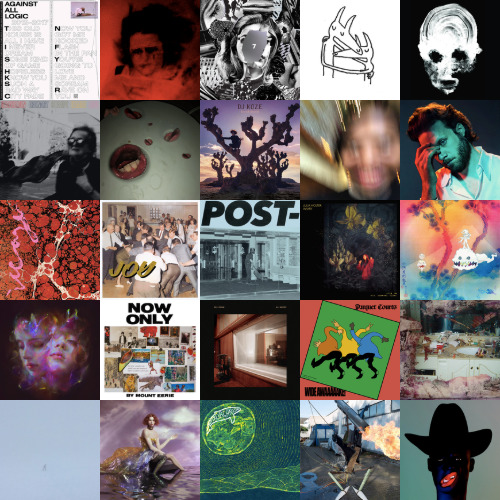
2012-2017 - Against All Logic
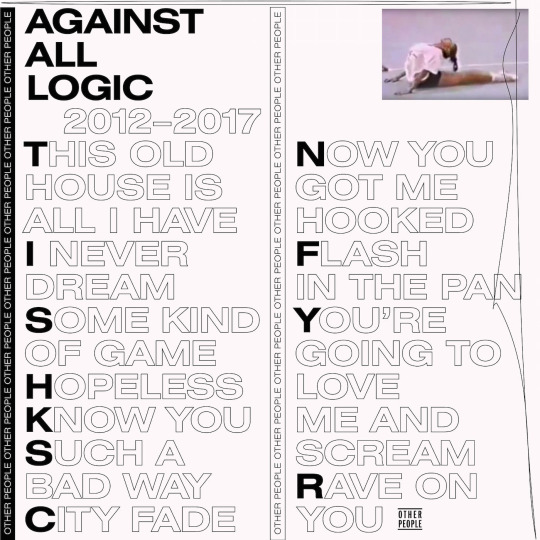
(Other People)
Whether Nicolas Jaar meant this to be an understated release or not, the deeply soulful samples, thunderous lo-fi aesthetic and immaculately timed and detailed track phasing of 2012-2017 make it one of the year’s most impressionistic and innovative electronic releases. Not pretending to be any more than a collection of house tracks, 2012-2017’s cohesion lies in its consistency of quality, as well as its lo-fi style. Jaar’s taste for extended, developmental dance songs is addictive and as fit for easy, danceable listening as it is for intense scrutiny. Every track begs repeated listens and rewards through revealing yet more hidden elements. It goes to show just how technically gifted Jaar is that an offhand collection of tracks can be so thoroughly excellent and make more of an impact than his more dedicated peers. -E
Dead Magic - Anna Von Hausswolff

(City Slang)
Dead Magic is Anna Von Hausswolff’s fourth full-length record in which she delves into the dark abyss in a purifying explosion of distressed emotion. A sinister ambience is maintained throughout, even during the more beautiful and uplifting moments – which are typically conveyed through Anna’s rich harmonies alongside powerful, yet unnerving, electronic drones. It is these moments that make Dark Magic what it is. Instead of wallowing in a pit of despair and desolation, Anna offers a way out, stressing that there is beauty even in the darkest of places. It is an exquisitely refined project which blends dark musical themes with emotive vocals to create a sonic soundscape that will leave you completely mesmerized. -M
7 - Beach House
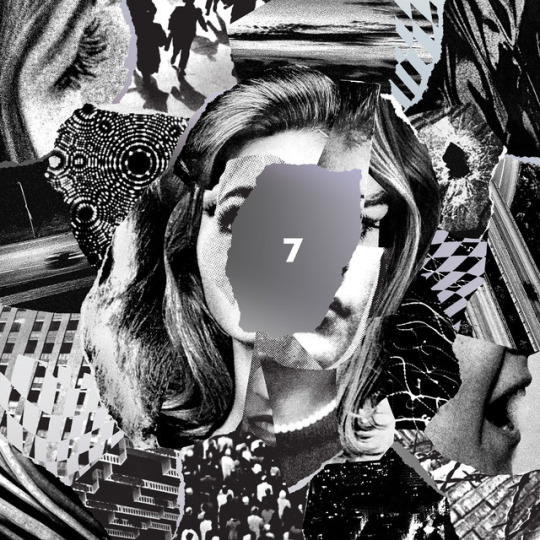
(Sub Pop)
Simplicity has always been Beach House’s charm and on 7, not only do they manage to revert back to the gorgeous, organic simplicity of Teen Dream and Bloom, but they do so while immensely expanding the breadth of their sound. 7 is only fingertips away from the untouchable timelessness of those two aforementioned records, and is one of Victoria Legrand and Alex Scally’s most ambitious artistic leaps and successful reinventions. This is an affirming record, demonstrating the duo alive-and-well, working with a still-evolving sound; and as easily as capable of producing indie-pop hits (‘Lemon Glow’, ‘Drunk in L.A.’) as they are of thoughtful, tender ballads (‘Black Car’, ‘Last Ride’). 7 has its fair share of career highs, cementing Beach House’s reputation as one of the finest indie acts of this decade. -E
Twin Fantasy - Car Seat Headrest

(Matador)
Will Toledo is perhaps the most inventive, boundary-pushing artist in modern indie rock; so when he turned his hand to remaking his own 2012 Bandcamp release Twin Fantasy, the result was always going be interesting. With two ten-minute-plus songs, extensive spoken-word passages, and a distinctly self-aware tone, nothing of the charm of the original was forsaken. A hi-fi recording, reportedly utilising seven musicians and a hell of a lot of retrospective adjustment to the source material, 2018’s Twin Fantasy is everything you felt the original had the potential to be, and more. Instead of a messy, chaotic cacophony, here Toledo’s project is revealed as an intensely personal, momentous opera of indie rock, with Toledo as a proclamatory main protagonist, an idol of teenage angst and confusion. Twin Fantasy is epic and indulgent, flawed and truly excellent. Indie rock hasn’t seen anything as promising as Car Seat Headrest since its heyday in the 90s, and this band are still yet to disappoint. -E
You Won’t Get What You Want - Daughters
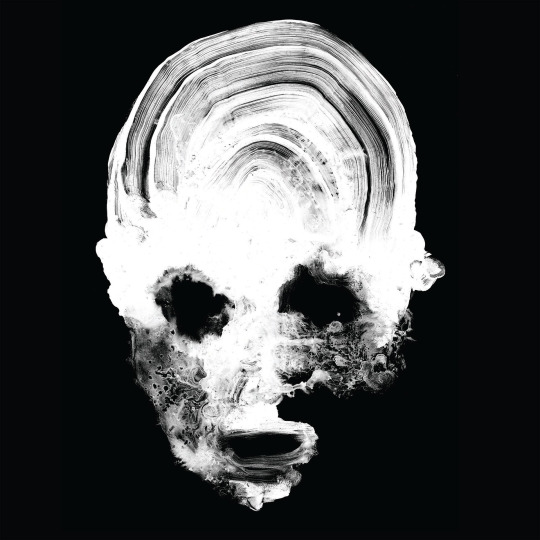
(Ipecac Recordings)
Bleak, harrowing and violent – three words that are often tossed around to describe bands loitering around the darker offshoots of noise rock; yet Daughters’ You Won’t Get What You Want accentuates those descriptors in their fullest definition. Like an atrocity one can’t seem to look away from, the Rhode Island band take the same uncompromising swathes of noise from their 2010 self-titled record but warp and extend it. Swallowing the rest is a manufactured, engrossing silence of negative space that underlies everything from the pulsating waves of distortion to Alexis S.F. Marshall’s vocals; from the clattering, dictatorial drumming to the smatterings of dramatic piano. Daughters’ thoroughly austere ethos has no release; You Won’t Get What You Want is uncompromising in its walls of thick, violent sound and thorough in its sheer immersivity. This is music unlike anything else released this year, and a revival statement for a genre that’s been largely stale for years. -E
Ordinary Corrupt Human Love - Deafheaven
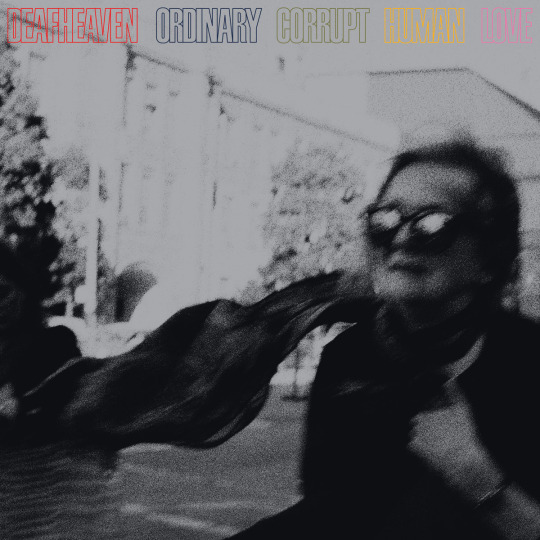
(-ANTI)
With their fourth release, Deafheaven give their critics the middle finger with an uncompromising statement of intent and self-determination. 2015’s New Bermuda hinted that the band had taken the critique of 2013’s Sunbather by metal purists to heart, as they went for a darker, more aggressive sound. With Human Love, however, we see Deafheaven position themselves in-between these two contrasting sounds, as they get the best of both. The hard-hitting aggression of tracks like ‘Honeycomb’ and ‘Yellow Canary’ will satisfy the most committed metal heads, whilst the hazy shoegaze of the shorter tracks, ‘Near’ and ‘Night People’, will enchant the Sunbather converts. As always, the juxtaposition of George Clarke’s piercing screeches paired with the beautifully aggressive guitar hooks of Kerry McCoy is something to behold. With the addition, this time of a heavily post-rock influence, the progression to an explosive climax has never been so poignant on a Deafheaven project. The LA outfit have switched up their sound flawlessly, finding the perfect balance of style and aggression in a masterwork of emotion and intensity. -M
Year of the Snitch - Death Grips
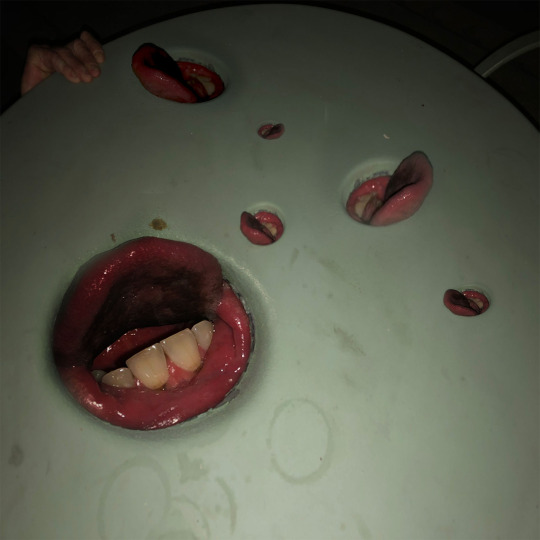
(Third Worlds)
How do they do it? This is Death Grips’ sixth studio album in as many years, and each one has been as exhilarating and unique as the next. Year of the Snitch is perhaps their most out-there project to date, and that’s saying something. This time out the trio go for a more experimental rock approach. The familiar elements of industrial hip-hop are of course still there, but they are dominated by heavy synths and guitar riffs to create a soundscape that is both unfamiliar, yet somehow typical of Death Grips. That, for me, is the beauty of Death Grips; no matter what direction they take their sound, they completely own it. Year of the Snitch is not going to dethrone Exmilitary or The Money Store, but it’s also not a runner up; it’s in a different world altogether. A typically unapologetic adventure through pop music from the Sacramento trio. -M
Knock Knock – DJ Koze

(Pampa Records)
knock knock is a house album that manages to escape the rather utilitarian nature of the genre, and is instead an artful and diverse project from the German. Koze is clearly a master of his class, as he effortlessly floats between hip-hop, soul, disco, house, and even folk, to create a project that is not merely a compilation of bangers, but a versatile playground of sounds, similar to that of [i]Wildflower[/i] by The Avalanches. The features on here are just as puzzling as the multitude of genres, with the likes of Bon Iver and Roison Murphey making appearences, but, of course, Koze manages to slot them in effortlessly. At 19 tracks, one would expect this album to feel like it had overstayed its welcome, but thanks to the wealth of ideas, it is a perfectly judged, captivating record. -M
Some Rap Songs – Earl Sweatshirt
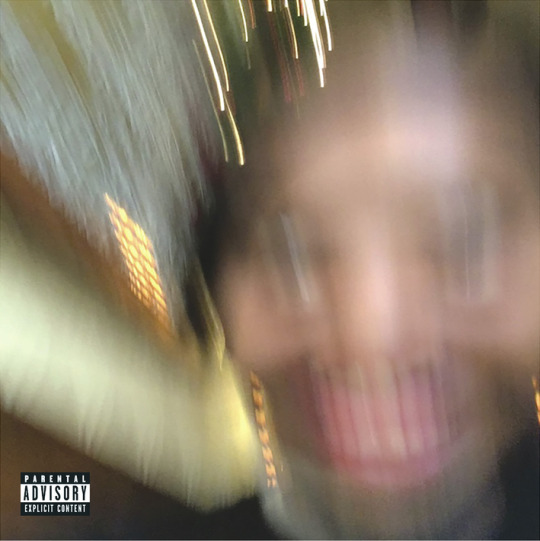
(Tan Cressida)
Earl’s transformation from the “hot and bothered astronaut” we were introduced to eight years ago, into the mature, yet despondent 24-year-old he is today has been and interesting and difficult experience to observe. His fourth full length album picks up where his latest EP, Solace, left off, as he continues to improve his craft, whilst simultaneously sees his mental health decline. Just like his earlier releases, the Madvilliany and Donuts influences are obvious, but this time take the form of production and song structure. Verses begin and end abruptly, choruses are essentially non-existant, and most of the beats consist of just a roughly looped sample. The result is that it feels as if we’re getting a peak into Earl’s musical sketchbook. Nothing feels finished or even polished, which gives the project a raw and intimate feel. Earl’s lyrics add to this feeling as he explores his state of mind by discussing his struggles with depression and the passing of his late father, displaying a maturity beyond his years. Some Rap Songs is a delicate and honest project from a talented and troubled artist, focused on the improvement of his art. -M
God’s Favorite Customer - Father John Misty

(Bella Union/Sub Pop)
Attuning his touch to more tender, less ironic pastures suits Josh Tillman to the tee. God’s Favorite Customer is a significant scaling-down from the grandeur of last year’s Pure Comedy, but the novelty of hearing Tillman’s actual emotions proves an adequate substitute. The metaphysical is, as always, a dominant, recurring theme, but the engrossing topics of failed relationships, suicidal thoughts and substance abuse combine for a stirring sort of listen that long-time listeners of his haven’t really had the opportunity to divulge in. As much as records need pacing, careers do too - whereas on I Love You, Honeybear and Pure Comedy Tillman is feeling sorry for us as a society and suffering with us along the way, God’s Favorite Customer sees him looking inward and finding a certain personal relatability. He’s a man who makes mistakes, and not so much the hip-swinging, foot-stomping unstoppable rock star he’s always seemed to be. Unmistakeably pitch-perfect vocals, supported by his usual excessively stellar songwriting and lush arrangements of horns, strings and so on, all make for yet another impeccable record from a man who can seemingly do no wrong. –E
Beyondless - Iceage
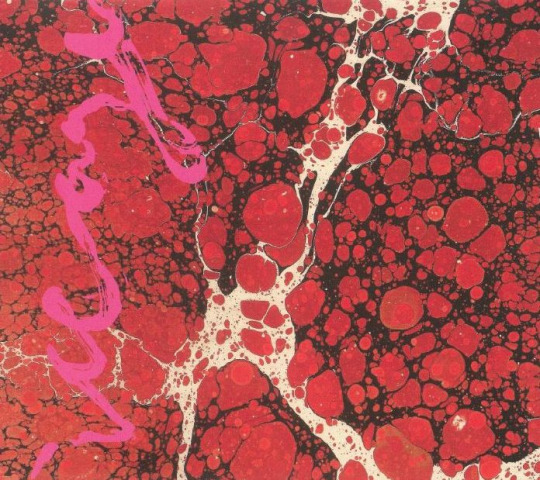
(Matador)
There’s a certain magnitude to the overall sound of Beyondless that takes your ears off; the culmination of four records of growth for Iceage from which they’ve emerged masterful, tasteful manipulators of their own terrifically refined chaos. The Danish art punk quartet edge closer to almost entirely orchestral noise rock (‘The Day the Music Dies), while also never straying too far from pop (‘Pain Killer’, ‘Catch It’). More a refinement of the style initiated on Plowing into the Fields of Love than its own bold stylistic turn, Beyondless reveals Iceage as a much-needed successor to the angrier days of the Bad Seeds. Gritty and throttling but eloquent too, their particular brand of post-punk isn’t just vastly noisy and technically excellent, but distinctive, promising and unlike anything else in the current scene. –E
Joy as an Act of Resistance - Idles
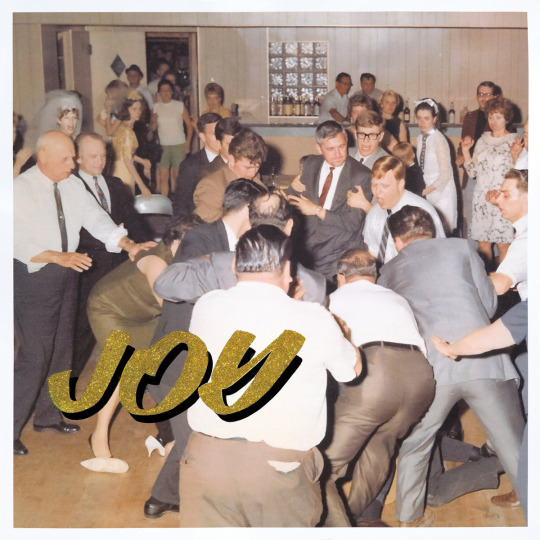
(Partisan)
Not one for the Tory snowflakes. Forty-odd minutes of Joe Talbot unrestrainedly slapping down the hypocrisy in the British right wing, taking pleasure in exposing the ridiculousness of all things bigoted, from Brexit to anti-immigrant sentiment, toxic masculinity to class hierarchy and general snobbery. It’s a piledriving critical punk commentary on Britain’s 2018, but more than just Brutalism updated for this year’s current affairs. Joy has some impressive musical developments, from more ambitious slow cuts like ‘Colossus’ to more emotional instrumentals, such as the heart-breaking ‘June’. Talbot isn’t the most subtle of political commentators but that’s precisely his point; and instrumentally Idles make sure every track is immaculately and brutishly performed, with nods to various strands of British punk dotted throughout. All the perks of Brutalism plus clear improvement, Joy is one of the finest punk records of the decade, from one of this year’s most essential bands. -E
POST- - Jeff Rosenstock
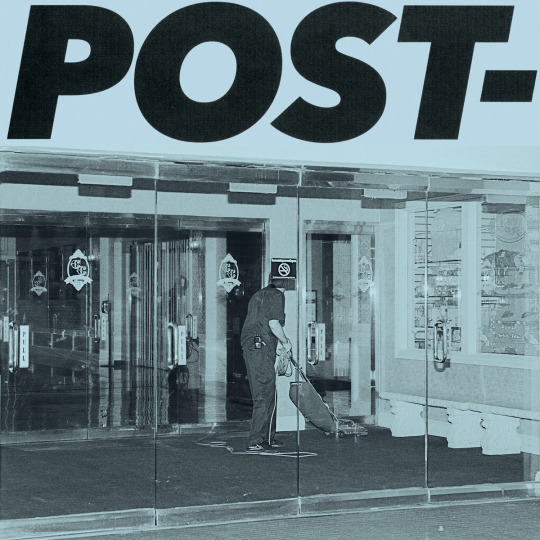
(Polyvinyl)
Jeff Rosenstock follows up his 2016 record, WORRY., with a similarly hostile and exhilarating showcase of pop-punk as it should be done. On POST-, Jeff’s dense style really shines through as the fierce melodic punk music is paired with cynical and somewhat depressing lyrics to create a perplexing, yet rousing juxtaposition. The lyrics are as catchy as they are striking, with many notable chants that will get stuck in your head for days. “ET TU USA, ET TU, ET TU USA!” It is unfortunate for Jeff that the success of WORRY. has somewhat degraded the standing of the record with most critics. POST- should not be overlooked as it is still an incredibly fun album, full of memorable chants and defiant sentiments. -M
Aviary – Julia Holter
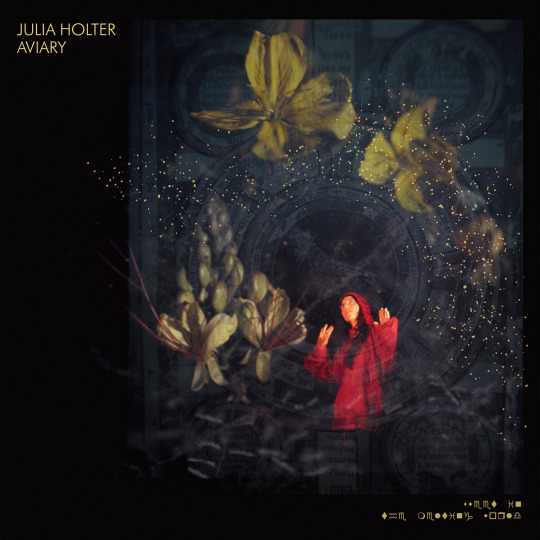
(Domino)
With such a change of direction from her previous effort, Julia Holter’s fifth full length release, Aviary, rejects traditional pop song structures, and offers us a work of art which is as beautiful as it is mad. It is perhaps the most uncompromising album released this year, with no regard for its accessibility or its reach. There are four-minute bagpipe spectaculars, howling choral compositions and moments of arduous free jazz. It is, indeed, a difficult listen at times, but we are rewarded with moments of sheer beauty. This is exactly the point Julia wants to make. She wants to portray the mayhem and hysteria of modern life, describing Aviary as “the cacophony of the mind in a melting world”, but also gives us an important message of hope and the resolve to look for an answer. That is why this album is so important; it is a vessel for empathy that invites disparate people to join in her euphoria.-M
Kids See Ghosts - Kids See Ghosts
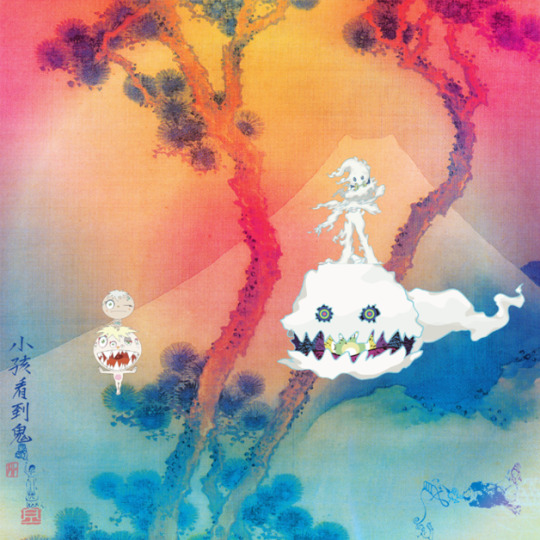
(G.O.O.D. Music/Def Jam)
Kids See Ghosts is a rare, rare breed of album that manages to take two artists and exact them both at the pinnacle of each of their abilities. Take Kanye West, at his most creatively unsettled, apparently cramming as many production ideas as he can into twenty-four minutes. Add Kid Cudi, and his apparently perfect range of singing, humming, harmonising and hook-crafting. Kids See Ghosts not only has them both at their creative peaks, but at their most lyrically relevant. West’s verses are incredible, eloquent and playful, reminding listeners exactly why he’s more than just a talented producer. He’s less confrontational and hubristic, while Cudi offers sensitive and deeply personal verses on his own journey through mental health problems. This is easily both artists’ best work this decade, an endlessly relistenable treasure-trove of a record that feels like more than just a genuine accomplishment, but justification that neither of these artists deserve any less reverence than they were deserving of in the first place. -E
I’m All Ears - Let’s Eat Grandma

(Transgressive Records)
British teenage duo Let’s Eat Grandma’s debut is enthralling, accomplished, experimental stuff. Channelling a broad range 80s synth pop idols such as Soft Cell and George Michael, but also taking obvious influences from modern pop artists like SOPHIE and The xx (not to mention Pink Floyd on ‘Calm and Collected’); Jenny Hollingworth and Rosa Walton’s ambitious songwriting, endearing lyrics and knack for poppy hooks aren’t just immaculately written and arranged, but make for some of 2018’s most addictive tracks. Virtually every track feeling like a single; the emotionally heavy ‘I Will Be Waiting’ or the jumpy ‘It’s Not Just Me’ are just as easily radio-friendly as the slow cut ‘Ava’, or the Oil Of Every Pearl’s Un-Insides run-off ‘Hot Pink’. Add to the mix the two long cuts, ‘Cool and Collected’ and ‘Donnie Darko’, and I’m All Ears gives a broad definition of the duo’s ambitions and talents, indicating their fondness for extended instrumental phases and ability for writing well-structured, impressively mature tracks. -E
Now Only - Mount Eerie
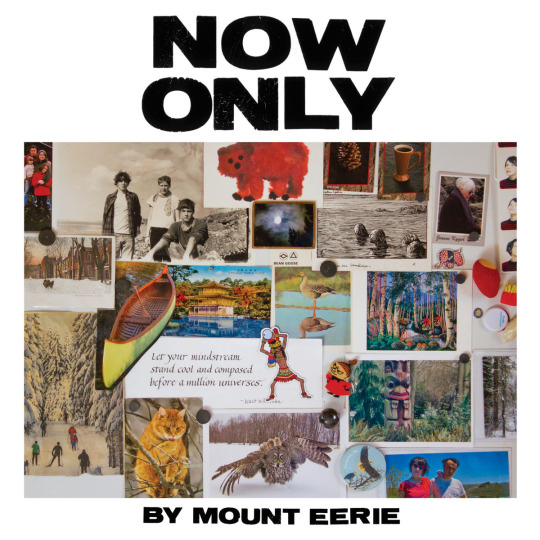
(P.W. Elverum and Sun)
Now Only, as a companion to last year’s A Crow Looked At Me, feels just as poignant a documentation of the process of one man’s grief as that record did. Slightly brighter and more reminiscent than purely devastated, Now Only shows improvements in Phil’s mental health not only through its themes and lyrics, but in how it expands instrumentally and structurally far beyond Crow, further toward the territory of the Mount Eerie work of old. Phil still has an unerring ability to chillingly plunge his listener back down to Earth with the utterance of a single, understated line, always having the reality of death looming over his vocals, no matter how wistful and optimistic they may seem. Phil can (like Kozelek, Malkmus, and few others before him) sing regardless of rhyme or pace, transcending lines and effortlessly fitting instrumental structures that occasionally err towards his work on Wind’s Poem or Clear Moon. Now Only is anything but another A Crow Looked At Me, an intense, documentary listen that demonstrates musical recovery as a metaphor for personal progress, that will (along with its companion live album, After) surely go down as one of the most profound artistic commentaries on death in popular music. -E
All Melody – Nils Frahm
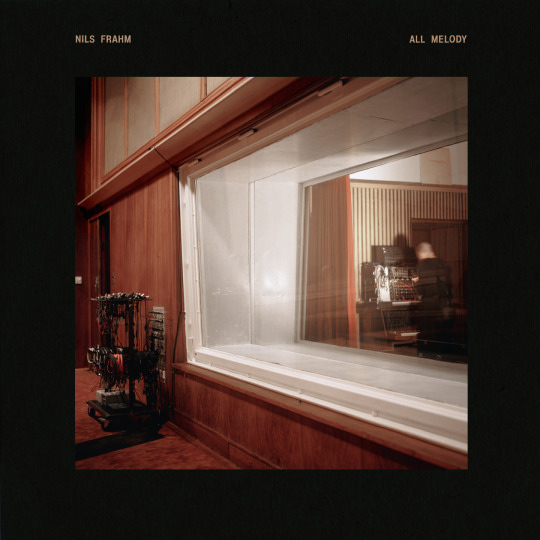
(Erased Tapes)
Nils Frahm’s All Melody is a real masterclass in progressive electronica. Following the atmospheric opener, ‘Sunson’ really kicks things off; a nine-minute rhythm-driven epic, with the pulsating hits of the bass marimba intertwined with pan-flutes and delicate synth melodies. From here we get an assortment of climactic electronic tracks, intense choral compositions and beautiful piano pieces, which somehow manages to maintain an impressive sense of cohesion and flow despite the disparities of sound. All Melody remains calm and meditative throughout, with a melancholic mood, but you never lose interest; each track is as captivating as the next. The attention to detail and texture, really make this album what it is; the nuances and subtleties give it the depth that an album with such ambition needs to stay interesting and emotionally compelling. A remarkably well rounded and unique album, incorporating qualities of techno, ambient and classical music to a devastating effect. -M
Wide Awaaaake! – Parquet Courts
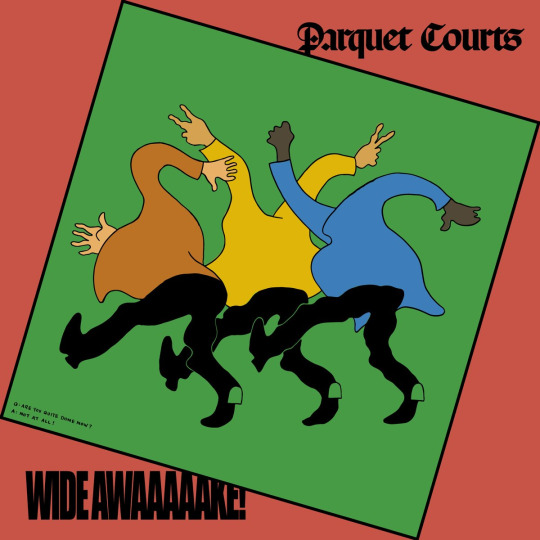
(Rough Trade)
Wide Awaaaaake! is a fantastic leap forward for Parquet Courts. The record is produced by Danger Mouse, a match that doesn’t necessarily make much sense on paper. However, the Grammy award winning producer allows Parquet Courts to run free, only adding his signature touches when completely appropriate. The result is that Wide Awaaaaake! is the groups most diverse record to date, with a wonderful sonic range from aggressive indie-punk to afro-groves reminiscent of Remain in Light. And the songwriting on this record is amazing. Savage and Brown hit gold with a dynamic blend of their classic art-punk rages and a more contemporary commentary. These lyrics are politically charged and socially conscious, yet done with such taste and style that nearly all pretension is avoided. Wide Awaaaaake! is a success on all accounts; Parquet Courts have experimented with their sound just enough to create something that sounds familiar but also entirely different. -M
DAYTONA – Pusha T
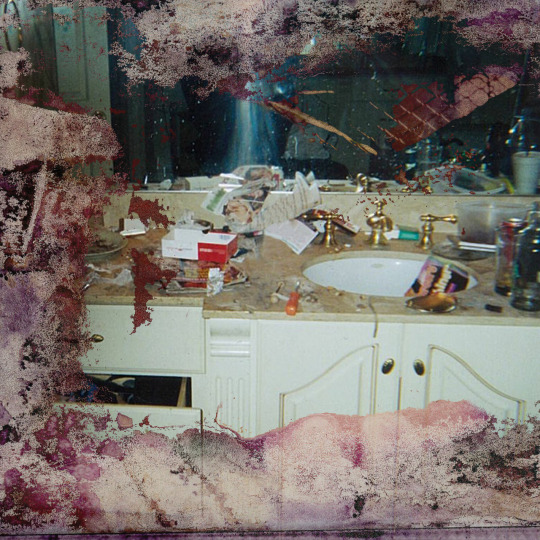
(G.O.O.D Music)
I think we’ve all been waiting for this for a very long time. Since Clipse broke up in 2010 and Pusha T started his solo career, there have been glimpses of brilliance, but his full-length projects have never truly delivered. Daytona, however is the perfect mix of his cocaine kingpin persona, political art rap, and gritty, challenging beats. All of these factors are typical of a Pusha project, but, under the direction of Kanye, there is a real sense of cohesion and focus which has been missing throughout Pusha’s solo career. The ending, Infrared is a particular highlight, as Pusha addresses the unscrupulous history of mainstream hip-hop, whilst also cementing his integrity within the genre; he truly is the ‘rapper’s rapper’. At a mere 21 minutes, this album will be one of the shortest in terms of run time you will hear all year, but it makes for an airtight listen, with no fillers – just straight bangers. -M
Compro – Skee Mask

(Ilian Tape)
On Compro, Skee Mask takes us on a trancelike adventure into the heart of the arctic tundra and out the other side. The opener ‘Cerroverb’ sets the scene as reversed samples are paired alongside occasional bass flickers to create a cold, dreamy atmosphere. From here on in there is a subtle exploration through 90’s dance music, with influences including trip-hop, jungle, and everything in between. Through his keen ear for a melody, and ability to bring his drums to life, Skee Mask reminds us how devastatingly sensual the fundamentals of dance music can be. Compro is a masterwork of simplicity and perfectly timed progression. The subtle changes to the texture and the slow build-up of the breakbeats throughout results in a vastly nuanced record capable of mixing these cold ambient scores with the energetic breaks and techno beats. -M
Oil of Every Pearl’s Un-Insides - SOPHIE
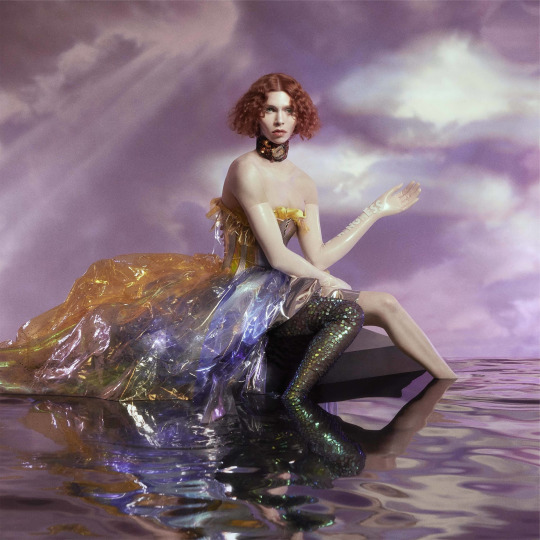
(MSMSMSM/Future Classic/Transgressive)
SOPHIE’s full length debut is as beautiful, beguiling and absurd as expected. Humorous and sincerely insane, Oil of Every Pearl’s Un-Insides ranges from achingly, tentatively soft to thunderously, tectonically loud, from dystopic drone to tongue-in-cheek BDSM references. It’s extravagant and knows it, and we wouldn’t have expected any less from the debut of one of contemporary electronic music’s most promising and revolutionary pioneers. Everything about Oil of Every Pearl’s Un-Insides is postmodern and glorious, displaying an excellence down both ends of the intensity spectrum; from the enveloping atmosphere of opener ‘It’s Okay to Cry’ to bombacity of EDM banger ‘Immaterial’. It feels exploratory of the capabilities of electronic music, seemingly including a take on Top40 pop, glitch, ambient and many, many other styles. A deliberately confusing listen, this is easily one of the most interesting albums of the year and one that I hope becomes a blueprint for others to copy in the years to come. –E
Superorganism - Superorganism
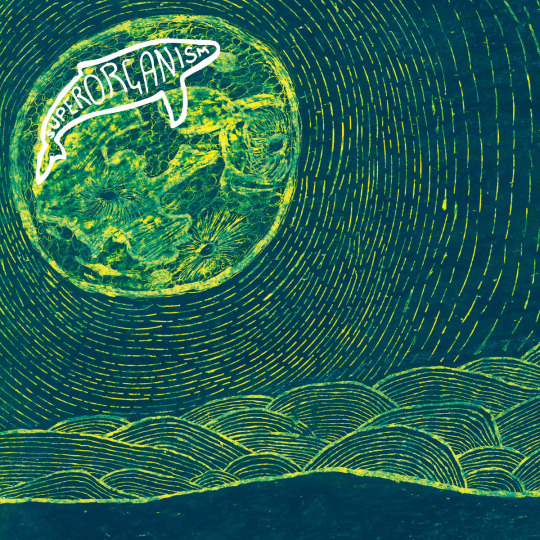
(Domino)
No one quite knows exactly what a “Superorganism” is (in musical terms), but if it’s some kind of eclectic creature churning out broad, slightly-left field and all-fun pop tracks, then this London-based, multi-continental eight-piece bedroom-pop collective fit the description pretty well. Don’t think too much when listening to Superorganism and it’s a joyous and bouncy, accessible indie pop album brimming with catchy choruses and ear-worming melodies. Listen deeper, and it’s jumpy and rich, glitchy and noisy; laden with quirky “found-sounds” like car horns and screeches, and playfully complex and layered. Playful, fresh and fun, the octet’s debut proves that mainstream pop doesn’t have to be mundane and formulaic, and that there’s a potential future in interesting, inventive pop music. -E
Konoyo – Tim Hecker

(Kranky)
Following the somewhat disappointing Love Streams, Tim Hecker is back on top, as he turns to Japan for inspiration – in particular the ancient courtly music known as [i]gagaku[/i]. The archetypal flutes, drums and strings of this traditional genre are contorted and manipulated, and eventually swept away into the cold and eerie electronic drones typical of Tim’s previous work. What emerges are vast soundscapes that are both minimal and monumental. Tim knows exactly what he is going for and is in complete control, able to fuse points of extreme simplicity and intense noise together so seamlessly. Konoyo is one of the most immersive listening experience you will have all year, and certainly puts itself forward as contender for ambient album of the decade. -M
Cocoa Sugar - Young Fathers
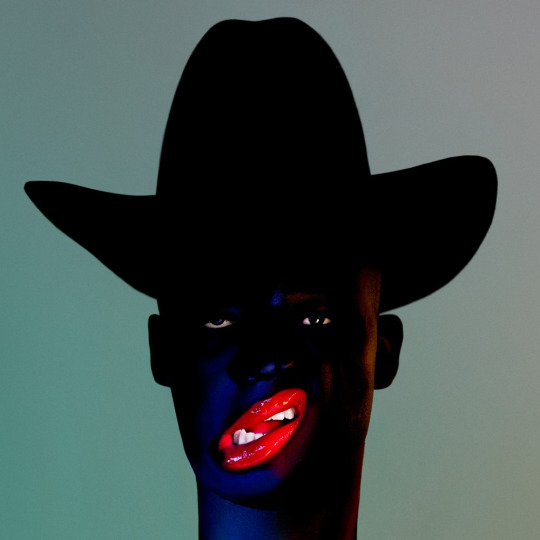
(Ninja Tune)
There aren’t many sounds in modern R’n’B as soothing as the three Scottish voices of Young Fathers, pining in tandem with their signature hypnotic, larger-than-life harmonies. Cocoa Sugar brings together the trio’s expansive, hymnal vocals and impassioned performances over instrumentals constructed of bass-heavy beats and minimalist melodic injections; crafting dense tunes with emotional weight and political potency. There’s an ardent politicism running throughout tracks like ‘In My View’, ‘Toy’ and ‘Border Girl’, as well as an undeniably British perspective that makes Cocoa Sugar relatable, relevant and important. On top of all that, it’s also impressively experimental; Young Fathers’ freedom from traditional song structures, accompanied by their distinctively alternative beat style, feels abstract and purposeful and unlike anyone else. This is their finest release yet, a brilliant demonstration of their stylistic breadth as well as their ability to work politics into their very particular niche of R’n’B. -E
2 notes
·
View notes
Text
Supernatural Series Finale: How to Wrap Up 15 Years of Story
https://ift.tt/eA8V8J
This Supernatural article contains MAJOR spoilers for the series finale. Obviously.
It’s hard to believe it, but Supernatural has come to an end. We had our theories about what might happen in the 15-season show’s ender, but Supernatural kept us guessing right until its final moments. “Carry On” is essentially a forty-minute epilogue to tie up loose ends after the definitive battle against God. It serves its purpose of bringing the series full circle to its humble beginnings: Sam gets his normal life. Dean goes out as a hunter. They reunite to keep riding that road together… in heaven. If you are having trouble (emotionally) processing everything that went down in the series’ final hour or you’re just not ready to let go of this show yet, here’s an explainer of everything that went down in the Winchesters’ final ride…
The Supernatural Series Finale Calls Back to the Beginning
Interestingly, the Supernatural ending episode plot centers around a normal hunt: a gang of kidnapping, masked vampires that Daddy Winchester had investigated years ago. There’s something poignant in being bested by a classic villain mentioned in Dad’s journal, something they often referenced in the early seasons. (Not to mention that Season 1’s Jenny is part of the group.) Things don’t play by the same rules though because Team Free Will were victorious against Chuck’s plans. There’s no more “get out of jail free” cards, no more divine intervention or “I’m Batman!” lucky pen throws. This is real, and for the first time in a long time, death is final. But it’s not the end.
There are so many references to the early days in this episode, including details like the zippo lighter Sam uses at the hunter funeral, to Harvelle’s Roadhouse making an appearance at the end. There’s a grudging lack of Ellen, Jo, and Ash, but that was a recurring issue with many guest characters who could have made a cameo.
Who Returns for the Supernatural Series Finale?
Many beloved characters were missing from this ending, from the aforementioned Harvelles to Mary and John Winchester to Castiel and Jack. This could be for a number of reasons. In interviews, showrunner Andrew Dabb explained that COVID lead to some changes in production. From these interviews we can ascertain that more people would have been involved with the finale, but in order to keep episodes tight and more COVID-restriction compliant, some of these other character appearances probably had to be sacrificed. In any case, it’s good that Bobby made the cut. He was more of an emotional attachment for fans, and had way more screentime than John while acting as the defacto father figure for years.
Dean Dies in the Supernatural Series Finale
No matter what, everyone can’t be happy with an ending to such a long running show. One major contentious point is Dean’s death. The main character is fatally stabbed during a fight with the aforementioned vampires, pushed against a wooden post and impaled by a metal rod. Before he goes, Dean says goodbye to his brother, saying: “Hey, I’m not leaving you. I’m gonna be with you. Right here. Every day. Every day you’re out there and living and you’re fighting—because you always keep fighting, you hear me? I’ll be there. Every step.”
But Dean’s story doesn’t end with death. We see him arrive in heaven, and reunited with Bobby. This heaven is a place where with “everyone happy, everyone together.” For Dean, it also includes Harvelle’s Roadhouse and Baby. Dean’s parents and Rufus live nearby and, as Bobby tells Dean: “It ain’t just heaven, Dean. It’s the heaven you deserve.”
Driver Picks the Music
One of the most famous music riffs in the series is what I’ve always dubbed the “sad Supernatural theme” which is really called “Americana.” The theme is usually played slow, in piano, underpinning the most heart wrenching scenes at the biggest moment of loss. Obviously it’s used to its tear-jerking potential over Dean’s final words to Sam, but the theme resurfaces, changing its meaning. For Sam and Dean’s final embrace of the episode on that bridge, “Americana” is played via electric guitar, in a more upbeat, uplifting tone. The theme has become triumphant, and indicative of a job well done for these weary hunters.
One can’t talk Supernatural music without rejoicing in the liberal use of Kansas’ “Carry On Wayward Son” for the ending scenes. This song has always resonated strongly with fans, from its initial use in the season one finale Salvation to its subsequent appearance in every season finale since. Not only does the musical group share the name of the state the boys hail from, the lyrics in this progressive rock masterwork always seemed to perfectly line up with the story Supernatural was telling.
The lyrics “On a stormy sea of moving emotion/Tossed about, I’m like a ship on the ocean/I set a course for winds of fortune” easily translates to the boys’ eternal fight against their supposed destiny. The line “Surely Heaven waits for you” is a promise fulfilled.
From their biggest tragedies to the hopeful optimism that would finally be peace when they were done, this song meant more than a tune you could tap a toe to. It was the musical embodiment of the heart of this show.
Metallicar
You couldn’t have Supernatural without the other main character since the pilot — Baby the Impala. Both Sam and Dean have plenty of scenes with the car when they are separated by Death, but a fun nod to the fans is in the details.
In Heaven, Dean drives the original version of the Impala, with the Kansas KAZ 2Y5 plate. Sam drives the Impala with the new Ohio license plate CNK80Q3. The plate had changed in the show after the Winchesters were arrested in Folsom Prison Blues at the end of Season Two. What had been a way for the boys to evade the law became a neat bit of trivia the fans have stored away all this time.
“This is Dean’s Other Other Phone”
Dean tells Sam to “Always Keep Fighting” which rings so true because it’s the name of Jared Padalecki’s real life charity T-shirt campaign, the proceeds of which went to programs dedicated to mental health, including To Write Love on Her Arms and The Wounded Warrior Project. In a way, Dean is also telling the fans to keep fighting, to not despair at the end.
Sam is obviously in a funk after all this takes place, going through the motions in a haze, tearfully petting Miracle while feeling the emptiness of the bunker. It’s when Dean’s phone — his other other phone — rings that he’s put back on his path to keep fighting. A werewolf attack in Austin, Texas — notably the city that Jared Padalecki and Jensen Ackles both live in real life.
The “other other” phone has only really been on the show as a voicemail recording Sam gets when all other contact options have been exhausted, and Dean must be in trouble. The fact that we finally see the phone in this episode, and it’s Sam that answers? It’s showing that Sam is the one to carry on.
Sam Has a Family
You can be a “Sam girl” or a “Dean girl” (or guy) but there’s a reason Sam was the surviving brother. Sam had to “carry on” because he was the one who could. When Dean went to Hell all those years ago, or even in the episode when the Trickster had him die over and over, finally leaving Sam to wander on his own for some time, Sam’s had a lot of experience being the one left behind. He learned to carry on from these experiences, as hard as it must be. Sam completes his own character arc, effectively picking back up where he left off and having a family with some out-of-focus-in-the-background wife.
Sam Joins Dean in Heaven
Years later, after living a long life, Sam dies and joins his brother in heaven. Here, the end mirrors the beginning. In the pilot, Dean picks Sam up from school in order to find Dad, thereby starting their 15-year journey. In Heaven, Sam ends up joining Dean again and they both happen to be wearing the same clothes as in the pilot: Sam, a tan jacket over blue t-shirt and Dean, a dark jacket over a red plaid shirt.
They reunite on a bridge. One of the most pivotal moments of the pilot episode was when they saw the Woman in White on the bridge. This time, it’s a brightly lit sunny day, but a bridge between the pilot and finale seems oh so perfect.
Heaven was self-contained before Jack “made things right.” Simply a rehash of your greatest memories playing over and over, yet so singularly lonely since everyone had their own version of Heaven. As Sam joins his brother, you get the sense that they’ve done their work and things are truly, finally, at peace.
cnx.cmd.push(function() { cnx({ playerId: "106e33c0-3911-473c-b599-b1426db57530", }).render("0270c398a82f44f49c23c16122516796"); });
Was the Supernatural Series Finale Good?
It ain’t easy wrapping up a popular series after fifteen years. Not everyone will be happy, but the finale did find a way to pay homage to the beginning while bringing it all to a bittersweet end. In a sigh of relief, the show exemplifies that there really is peace to strive for after all. No matter the end, fans have fifteen years of show to look back on, meta episodes to laugh at, monsters to creep you out, and enough chick flick moments to make Dean blush. There’s a lot to love there, and at the core of it all is family. And family don’t end with blood.
The post Supernatural Series Finale: How to Wrap Up 15 Years of Story appeared first on Den of Geek.
from Den of Geek https://ift.tt/3lQWGpB
0 notes
Text
Best of COVID-2019: (Late) 2019 End of Year Wrap-up

Even though we’re well into 2020, most of us would probably swallow a pill that makes us forget the year so far. With a new job, I got too busy to do an end-of-year wrap-up of my picks for the best albums, movies and shows of 2019, so assuming you’ve swallowed your Hindsight Pill™ (get it?, cause hindsight is 20..ok, fair if you stop reading now) here’s my take on the best music, movies and shows of 2019. Maybe you’ll find something to make the rest of quarantine a little better.
ALBUMS
Remind Me Tomorrow by Sharon Van Etten on Spotify
It’s hard to find a better album this year. It’s heartfelt, gentle in places / wild in others, it pushes her sound forward from her more folky records of the past and gives us the opportunity to gaze into this sensitive she-hulk of an artist’s soul.
Favorite Track: Jupiter 4 - Jupiter 4, a song by Sharon Van Etten on Spotify
Lux Prima by Karen O on Spotify
This concept album by Karen O (“Yeah Yeah Yeahs”) and Danger Mouse (“Broken Bells”, “Gnarls Barkley”) can best be described as a record composed by badass feminine superhero from the future who has a nostalgic fascination with soundtracks from 70s European love story films. It’s phenomenal. The chord progressions are unusual and interesting. The vibe is consistent throughout. It’s a great record to listen to intentionally or a perfect soundtrack to a day outside with friends.
Favorite Track: Nox Lumina - Nox Lumina, a song by Karen O, Danger Mouse on Spotify
Lana Del Rey - “Norman F*ing Rockwell“ (censored for my mom)
I get it. You stopped following Lana after “Summertime Sadness”. She’s not your jam. She’s vapid. There’s something about her appearance that you don’t like (Didn’t she get her lips done?). She doesn’t make serious music. Here’s the thing though: You’re f*cking wrong (censored for mom). LDR is one of the most prolific songwriters and performers we’ve got. This artist has evolved with each album and the songwriting keeps improving. This is her best album to date. The lyrics take on deeper themes than her prior records and any ego on previous submissions seems to have been replaced by a general comfort in herself and the discomfort of her experiences and relationships (fictional or not). This is also her release with the lightest touch. She’s not pushing the LDR persona anymore, she’s being herself — take it or leave it. It’s her, your little Venice B!tch (censored for mom). Hi, mom!
Favorite song: Venice Bitch, a song by Lana Del Rey on Spotify
Phoenix by Pedro The Lion on Spotify
This is my favorite artist’s first studio album in 15 years. (!!!) It’s not technically fair to say that because he released several color records in the interim. As a largely one-man show, the DNA was very much the same. But this is a true return to form for the the man known as David Bazan that I’ve been following carefully for 20 years and have seen live too many times to count.
This is a concept album (most of them are) about his experience growing up in Phoenix, AZ. But it’s more about growing up than about Arizona. I got goosebumps and watery eyes the first time I listened carefully to the lyrics of “Yellow Bike” which tells about the experience of getting your first bicycle as a little boy around 1990. For me, this was the apex of my childhood. Absolute freedom and the ability to easily join any pack of desperado bike kids.
The album hits hard with the catchy hooks, introspective lyrics, challenging topics and excellent production & instrumental performances only using standard rock staples like guitar, bass and drums (with a couple quick appearances of an organy synth).
Lyrics, melody & a great beat. This is a fantastic rock album.
Favorite song: Yellow Bike, a song by Pedro The Lion on Spotify
WHEN WE ALL FALL ASLEEP, WHERE DO WE GO? by Billie Eilish on Spotify
Much has been written about this wunderkind. You know her. It’s a great album. She has a promising career ahead of her.
Favorite song: when the party’s over, a song by Billie Eilish on Spotify
SOUND & FURY by Sturgill Simpson on Spotify
This album slays. It’s a badass rock album. If you don’t know Sturgill Simpson, he’s technically a country act… BUT! He’s entirely rejected the conventions of modern country with its shallow lyrical content, right-wing dog whistling and computer-assisted faux harmonies. He sings about psychedelics, his problems with religion and also covers 80s synth-pop in country ballad fashion. Well, forget all that for this record. It’s a banger. This record sounds like Waylon Jennings was cloned 100 years in the future and brought back just to record a ZZ Top album. Major leap for this artist. One of the best of the year.
Favorite song: Make Art Not Friends, a song by Sturgill Simpson on Spotify
ANIMA by Thom Yorke on Spotify
We’ve had a complicated relationship with Thom Yorke’s solo work. As the lead singer of Radiohead, we’ve had to give deference to literally anything with his name on it. But his prior solo works have waded into the avant-garde and we’re entirely listenable in a casual way throughout. This has changed. This record is a masterwork. In fact, it demanded a beautiful short film directed by Paul Thomas Anderson (“The Master”, “There Will Be Blood”) released on Netflix earlier in the year featuring no dialogue and Thom and his wife is choreographed love affair starting during a mundane commute. My favorite track is the most peaceful and introspective on the album.
Favorite song: Dawn Chorus, a song by Thom Yorke on Spotify
Fear Inoculum by TOOL on Spotify
It’s TOOL’s first album in 13 years. WHAT. It’s fantastic. Worth the wait? Hell no because that’s too long to wait for almost anything. There are people with Snapchat accounts that weren’t alive when “10,000 Days” came out (2006). 728,000,000 people (presumably, all TOOL fans) died since their last album. I can’t, in good conscience, condone the deprivation of 3/4 of a billion people like that. But it’s SO good. This is metal for people that don’t like metal (I don’t really like metal).
Favorite song: Pneuma, a song by TOOL on Spotify
Screamer by Third Eye Blind on Spotify
I may be literally this bands only fan still paying attention, but I don’t care. They’re still writing fantastic tracks. This was one of my heavy-hitter bands in high school. I learned every song from their first two albums on the guitar. Then I stopped paying attention for like 13 years. In 2016, I ran across a new single by the band and went in with a lot of trepidation. Most bands from your high school years should probably leave it there. There's nothing worse than a band desperately trying to stay relevant with weak ass releases well beyond their shelf life (cough Goo Goo Dolls –– They've put out 4 albums in the last 10 years. 🤦♂️) But then I heard Third Eye Blind's pro-Black Lives Matter track “Cop vs. Phone Girl, a song by Third Eye Blind on Spotify” released in 2016. Go back and listen to that one. It's not only catchy as hell, but it's got a gut punch of a message about how shitty is it to be a well-meaning black student in a white-dominated power structure that's supposed to be a safe place like school.
Well 2019’s “Screamer” doesn’t disappoint either. It’s all the same energy and hooks of the band’s early sound with an updated feel and sensibility that still feels like a relevant rock album. All the same things you came to Third Eye for in the past is right here waiting for you on “Screamer”. I know I’m gonna get some flack for this one, but…shut up.
Favorite song: Ways, a song by Third Eye Blind on Spotify Bonus points if you catch the “Outside Lands” ref.
i,i by Bon Iver on Spotify
Short review for people who know how to pronounce the name correctly: It’s a Bon Iver record. Listen to it.
Longer review: It’s pronounced “Bone ee-VAIR” based on the French bon hiver, meaning “good winter”. If this is news to you, here’s a nugget from an interview where the main figure in the band explains it:
When I was living up north I wrote a letter. I’d come across a story about this Alaskan town that the people, the first snow of every year, they come out of their houses and gather in town square. They hug and kiss each other and they say “Bon Iver.” I was like, “whatever that is, that’s cool!” … Then I found out how it’s spelled and it was sort of disappointing. I didn’t like how it looked. It didn’t have any emotion. Looking at it didn’t make any sense. I wanted to look at it and feel something. It was sort of a compromise. I sorta wanted it to be like “Bon Iverre,” sort of like how I saw it, but that didn’t look good either, so I just decided to chop off the “h.” Bon Iver | Pitchfork
OK, now that you’re caught up. I guess you haven’t been paying attention, but Justin Vernon or Bon Iver (DBA) is one of the luminaries of the music industry. This grammy-winning dude-band has collaborated with Kanye, Jay-Z, James Blake, Travis $cott, Poliça, Ani DiFranco, Vince Staples, Eminem, Bruce Hornsby and more. But if you need me to explain any of this to you, do yourself a favor and go back and listen to his other 3 studio albums. Every one of them is treasure.
Favorite Song: Hey, Ma, a song by Bon Iver on Spotify This song makes the top 5 of all the tracks he’s released.
MUSIC - Honorable Mentions
Amyl and The Sniffers by Amyl and The Sniffers on Spotify
Two Hands by Big Thief on Spotify
I vs I by Alex Ebert on Spotify
Face Stabber by Thee Oh Sees on Spotify
Infest The Rats’ Nest by King Gizzard & The Lizard Wizard on Spotify
MOVIES
Hail Satan? (Hulu)
JustWatch
Hilarious look at a group trying to make Free Speech really free.
youtube
Once Upon a Time in Hollywood
Duh. Also I got low-key obsessed with cults after I watched this.
MONOS
Incredible Spanish language drama about child soldiers in South America. Great acting by unknowns.
youtube
Green Book -Duh
Duh. Won an Best Picture.
Parasite
Duh. Won Best Picture.
Joker
Duh. Won life.
Greener Grass
JustWatch
The weirdest movie I saw all year. Bizarre and hilarious. Written by the two actresses who star.
Apollo 11
INCREDIBLE documentary about the first moon landing mission featuring a ton of footage I’d never seen and assembled into such a magnificent narrative. You feel like it’s happening in real-time today. The last time mankind was united around one hope.
youtube
SHOWS
The OA - Season 2 (Netflix)
This was one of the most beautiful creations I’ve seen. Epic followup to the first season which seemed like an impossible act to follow. Netflix canned the show, but there’s still hope it will get a resurrection through another venue.
Watchmen (HBO)
This is a sequel to the critically acclaimed graphic novel from the late 80s. You should read the novel first. As stated two sentences ago, this is a sequel set 34 years after the events of the novel.
The Boys (Amazon)
This is the first realistic superhero story. Why have we always assumed that those with superior or supernatural powers would be intrinsically good and seek to served mankind? Regular humans don’t even act like that toward each other. In this world the soops are like paid athletes and are secretly total pricks. Well made and begging for a second season.
Chernobyl (HBO)
Haven’t seen this? What is wrong with you? It’s in the top 5 highest rated shows of all time on IMDB. One thing I’ll note is that it did a good job separating the characterization of the soviet people from the soviet government. The everyday soviet people in the story came out looking like heroes while the government lived up to its reputation. It made me a lot more curious about soviet history which has led me to other movies, books and Wikipedia rabbit holes. Watch this for the historical value, at a minimum. It’s not as gory as you might be afraid it is.
Love Death + Robots (Netflix)
I love sci-fi and I love weird animation so this just brought it home for me. The episodes are often short and sort of feel like Twilight Zone episodes, each with their own mini narrative or moral lesson. Each episode is made by a different creator or team, so the variety is part of the curb appeal. Great binge material.
1 note
·
View note